
50 Mainers
Creating a brighter future for the state.
One of Maine’s greatest assets is its people—the industrious, creative, and entrepreneurial individuals who are proud to call Maine home. But sometimes, no amount of dedication or talent is enough for someone to reach their goal. That’s where these 50 individuals come in. The best leaders help those around them to succeed, and the following pages are filled with people supporting their fellow Mainers to reach their greatest potential. They’re teaching immigrants and young people skills needed to succeed in the workforce. They’re supporting our farmers and loggers as they adapt to a changing economy. They’re guiding our entrepreneurs and connecting them with resources to grow their businesses. Maine’s future is brighter because of the people each of these Mainers has helped along the way.
Betsy Biemann | CEO of Coastal Enterprises, Inc.

Betsy Biemann believes that if you work hard, you should be able to earn a decent livelihood. In 2016 she became the CEO of Coastal Enterprises, a community development investor that finances and advises small businesses that provide jobs and strengthen communities in rural regions and small gateway cities. Since its founding, CEI has evolved into a family of organizations that work across Maine, northern New England, and nationally. In her role, Biemann oversees diverse programs that coach women and immigrant entrepreneurs, use tax credits to redevelop historic buildings, and finance large companies, and advocates for public policies expanding access to the internet, childcare, and affordable housing. Biemann says CEI’s investments help people in rural communities thrive and reinvent themselves. “Seeing businesses grow and the pride that people have in their work is incredibly rewarding,” she says of the 40,000 full-time jobs that CEI has helped create and retain over its 41-year history. Before joining CEI, Biemann worked at the Rockefeller Foundation, served as president of Maine Technology Institute, and led a Harvard University study highlighting how Maine’s farming, food, and beverage manufacturing industries generate business and job growth and contribute to statewide prosperity. She serves on the board of the Elmina B. Sewall Foundation, which aims to improve the lives of Maine’s people and the environment in which they live. Through her leadership at CEI, Biemann works toward building an economy that benefits all Mainers. “When the economy is not working for everyone, it is not working for Maine or our nation,” she says.
Abdullahi Ali | Founder + CEO of Gateway Community Services

When Abdullahi Ali was a child growing up in refugee camps in Dadaab, Kenya, his parents taught him the importance of charity work, and he remembers helping his neighbors collect water and firewood for cooking. “I believe the best way to show gratitude is to give back to those in need,” Ali says. “Even if it’s as little as a smile.” In 2007 he became the first person in his family to go to college when he enrolled at the University of Nairobi to study sociology. Two years later, Ali moved to Maine as a refugee. He finished his undergraduate career at the University of Southern Maine, and received his master of science degree in justice studies from Southern New Hampshire University. In 2014 he founded Gateway Community Services in Portland, an organization that provides counseling for children and adults, and youth empowerment services, with a focus on immigrants and refugees. Ali’s background allows him to relate to the needs of immigrants. He helps them find training to learn English, apply for jobs, secure housing, and integrate with the community. “I understand the struggles and challenges that immigrants face,” he says. “And because of this, I strive to create an environment where immigrants and other Mainers can feel safe and empowered.” Within the past five years, under Ali’s leadership, Gateway Community Services has served over 1,000 individuals and opened locations in Lewiston and Augusta. It now employs more than 100 people.
Kate Braestrup | Chaplain of the Maine Warden Service

When Kate Braestrup was 33 years old, her husband was killed in a car crash while on duty as a Maine state trooper. In 2001, five years after her husband’s death, Braestrup found a place to translate her grief into a useful position of leadership by becoming the chaplain of the Maine Warden Service. “I can recognize the distress that people experience when met with calamity, and I am honored to work with Maine game wardens in providing care and compassion,” Braestrup says. As a chaplain, she provides pastoral care for game wardens and their families and serves the search-and-rescue teams by consoling civilians whose loved ones are lost in the Maine woods—a job she feels privileged to do. She also travels the country to train law enforcement officers on how to refine their care and comfort skills and teaches recruits at the Maine Criminal Justice Academy how to give death notifications. Because of her dedication to training Maine’s officers and in recognition of her 18 years of service as a chaplain, she has been honored with the University of Maine’s Maryann Hartman Award and the Maine Warden Service’s Exemplary Service Award. Her life experiences and grief counseling skills are also the focus of her New York Times bestseller, Here If You Need Me, a memoir recounting her journey from life after her husband’s death to becoming an ordained minister and eventually finding her calling as a chaplain.
Amanda Beal | Commissioner of the Maine Department of Agriculture, Conservation + Forestry

Amanda Beal has fond memories from growing up on a dairy farm in Litchfield, but the experience also instilled in her a sense of the hard work required to be a farmer. Later, when she began helping to develop a succession plan for her younger brother to take over the family farm, she discovered how complicated and challenging ownership transitions can be for farmers. It’s an issue facing farms across Maine, with older farmers retiring and trying to find a way to transition ownership of their farmland, and one that Beal addressed when she became president and CEO of Maine Farmland Trust. “That point of transition can be a real point of vulnerability for farms. If it doesn’t feel like you can make other options work or if pressed for time to make a change, the future of that land can be at risk for development,” Beal says. “The amount of really good farmland soil is finite.” Now, as commissioner of the Maine Department of Agriculture, Conservation, and Forestry, her purview is even more broad. “I have a tremendous amount of respect for those who make their living from the land, like our farmers and foresters, and see our natural resource base here in Maine as the real and most enduring backbone of our economy,” Beal says. “Having grown up in a farming family, I also appreciate what a special upbringing I had, and want to ensure that our family farms thrive, and that farming is a viable way of life for generations to come.”
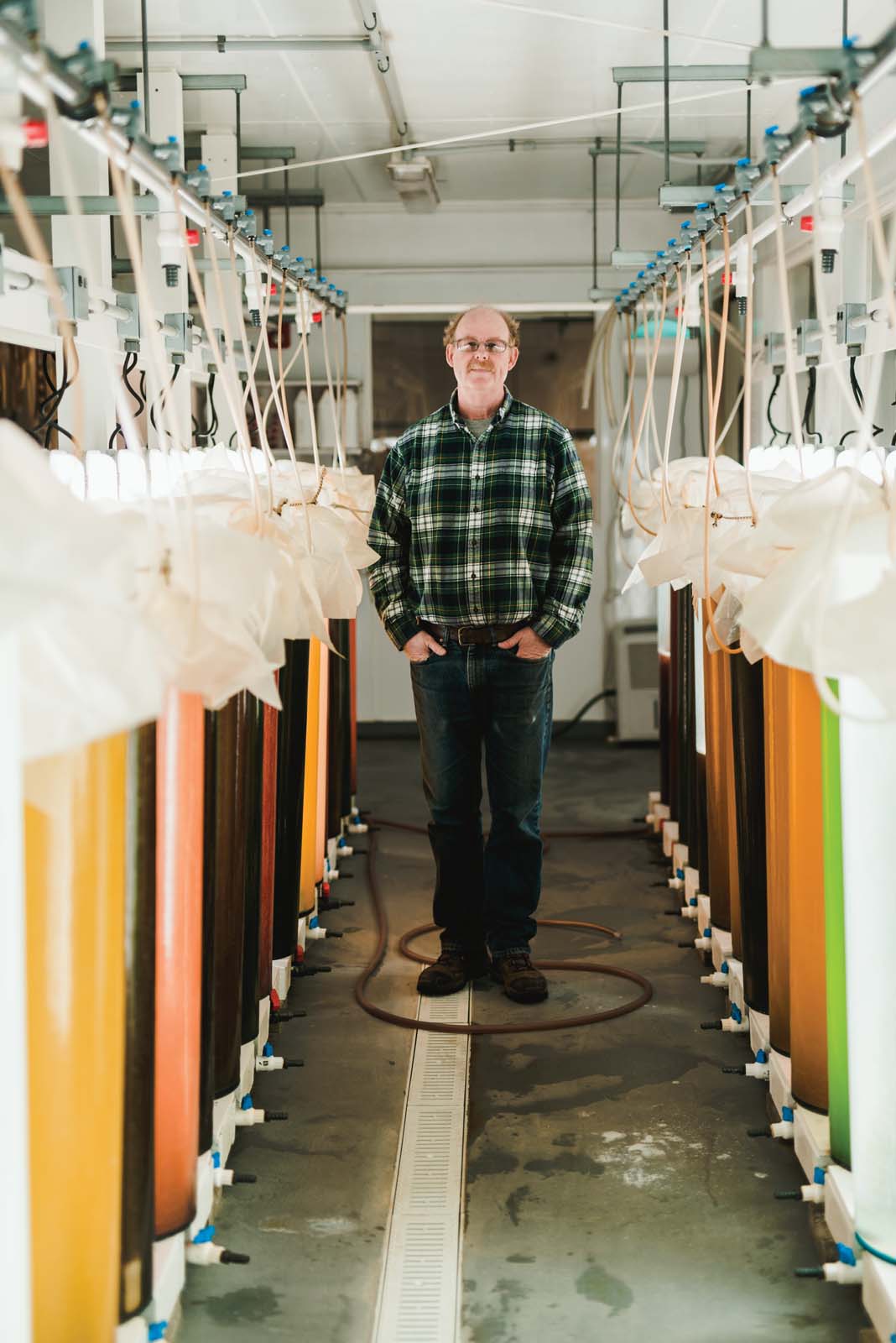
Brian F. Beal has played a pivotal role in enhancing Maine’s marine economy since the 1980s. In 1986 his work was instrumental in instituting Maine’s first lobster hatchery, and in 1987 he helped to create Maine’s first public clam hatchery. More recently, Beal helped open the easternmost marine research laboratory and education center in the United States, on Great Wass Island in Beals. The research and education facility is part of the Downeast Institute, an organization dedicated to improving downeast and coastal Mainers’ quality of life through marine research and marine science education. Beal is the director of research at the Downeast Institute and a professor of marine ecology at the University of Maine at Machias, and he shares his knowledge with a wide variety of people, including teachers and their students (ranging from kindergarteners to high school seniors) and clammers, fishers, and fishery managers. Beal’s applied research not only has scientific ramifications, it also has significance for the local economy and workforce, such as a recent study of soft-shell clam survival rates. “The study answered interesting theoretical questions about the ecology of soft-shell clam juveniles,” Beal says, “while at the same time it answered a very applied question that communities would have if they are trying to enhance clamming stocks in their flats.”
Meris J. Bickford, ESQ. | CEO of the Maine State Society for the Protection of Animals

The first time Meris Bickford stepped inside the Maine State Society for the Protection of Animals (MSSPA), she fell in love. “Being here is like a calling, as though all of my previous life experiences were simply preparation for what was needed here, to reinvigorate the organization and rescue the financially failing shelter,” Bickford says. The Windham-based nonprofit organization rescues and rehabilitates abused and neglected horses and helps find new homes for the rescued equines. MSSPA largely relies on volunteers and donations to maintain operations. Bickford, who started with the society in 2007 and took over as CEO in 2011, has been fundamental in the organization’s revitalization and continued success. One significant change she implemented was the integration and development of core volunteer groups, including women who are incarcerated at the Southern Maine Women’s Reentry Center, also in Windham. There’s a parallel of healing between the women from the center and the rescued horses, Bickford says. The women see firsthand that the horses can recover, and it helps to facilitate their own recoveries. Bickford developed an organizational foundation for the non-profit by overseeing the creation of a website and newsletter, creating development functions and a budget for the organization, staffing the board of directors, lobbying on animal welfare issues, and beginning conversations to seek financial support, all while mucking stalls and feeding horses. “If I ever feel discouraged in my efforts here—which is rare,” she says, “I just go out to the barns and look into the faces of those who are depending on me.”
Donna Cassese | Government Relations Consultant for Sappi North America

For more than four decades, Donna Cassese has worked for Sappi North America, a global wood products company, and in 2008 she took over as managing director of the company’s Westbrook mill. Built in 1854, the mill now produces 40 percent of the world’s supply of release paper, which is used to produce coated fabrics and laminates for creating products such as car seats, handbags, and flooring. “This growth is based on our commitment to innovation and investment,” says Cassese, who now serves as Sappi’s Maine-based government relations consultant, a position that allows her to focus on the future of Maine’s paper industry. Cassese works with the FOR/Maine initiative to advocate for expanding Maine’s traditional forest products with new products made from wood, such as bioplastics, jet fuel, and chemicals. “I want to ensure that the forest industry continues to be a strong contributor to our economy,” she says. Cassese hopes the industry will continue to provide work opportunities for Maine’s high school graduates. “I have the privilege of working with and developing many young people in the industry,” she says. “Giving back to the forest industry, which has such a long legacy in Maine, is a privilege.”
Reade Brower | Owner of Masthead Maine
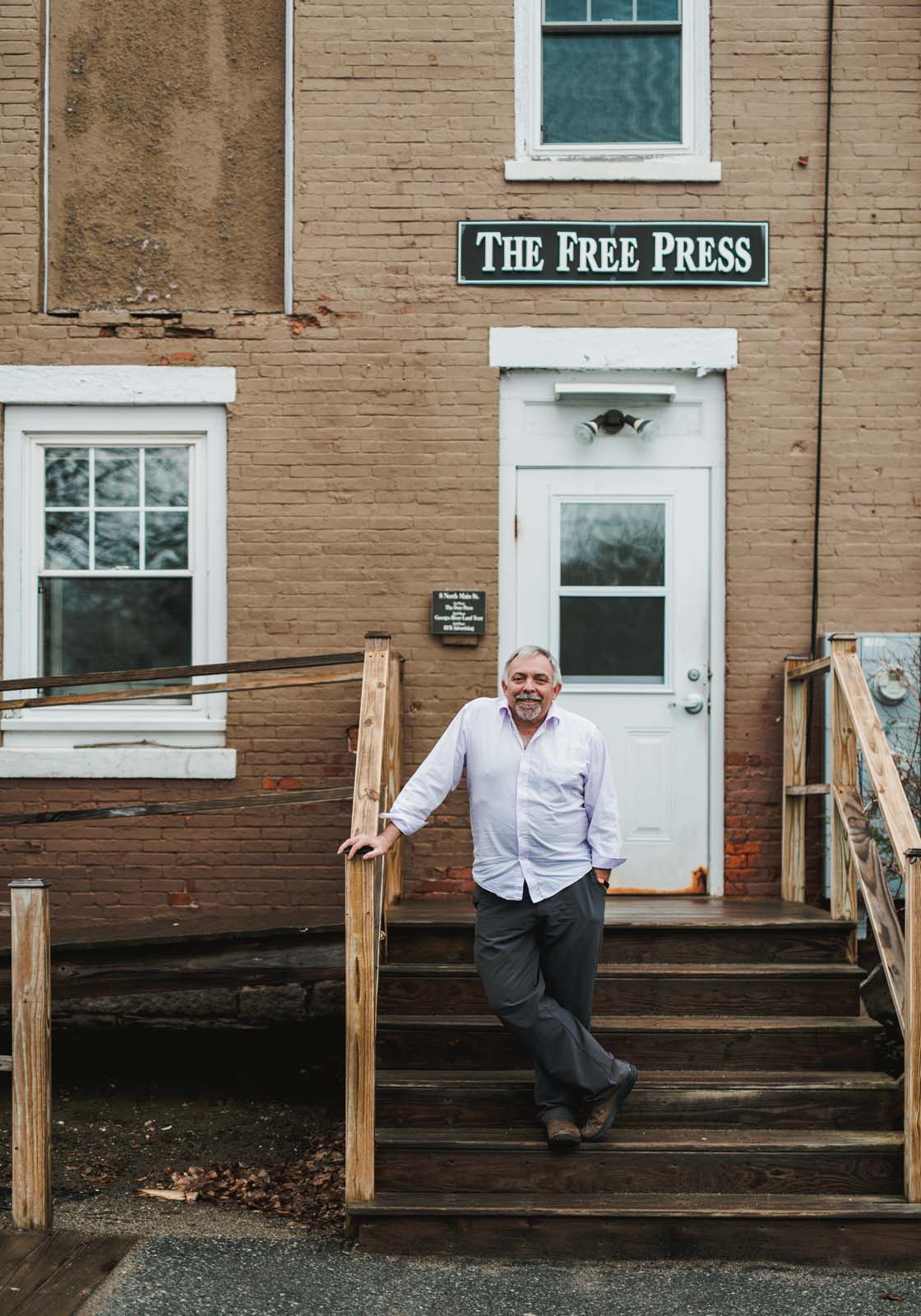
“You come to the place that you’re meant to be if you can go with the flow,” says Reade Brower. “None of this was by design.” By this, Brower is referring to owning six of Maine’s seven daily newspapers and more than 20 weekly publications. The level of consolidation among Maine’s newspapers by Brower’s media group, Masthead Maine, is unprecedented in the state, but Brower remains hands-off in the day-to-day operations of his publications and stays out of editorial decisions. His expansion into daily newspapers came in 2015 when he approached Maine Today Media, publisher of the Portland Press Herald, Kennebec Journal, and Morning Sentinel, about printing some of their papers. Instead, owner Donald Sussman suggested he buy the papers. “I just could not say no each time an opportunity rose. It seemed like it was a win-win. It would help create a sustainable business to help what I already have survive, and it also was a good way for the papers involved to find a good home.” Brower now owns three printing presses. That, along with other synergies among his publications, has made the newspapers more sustainable and allowed the newsrooms to avoid the kind of cuts that have gutted other local papers across the country, he says. “I think the biggest job of a newspaper is to be a watchdog and provide information to citizens about their communities,” Brower says. “If you’re doing those two things, you’re doing a good job.”
Jim Brady | Cofounder + President of Fathom Companies

Eight years after winning a silver medal in the 1992 Barcelona Olympic Games for sailing, Jim Brady moved to Maine to work as a real estate developer. As a professional sailor, Brady would not only operate the boat; he would also hire the naval architects and boat builders and choose race venues and the crew. “I found that those project-management skills were transferrable into real estate development,” says Brady, who in 2017 cofounded Fathom Companies, a real estate development company with a focus on historic renovations. Portland’s proximity to the ocean and its historic character are what drew Brady to Maine. “The creativity of our business community and the vibrant cultural life make Portland a great place to live, and I have found a way to contribute to the local community by preserving historic buildings in urban areas.” Four years ago, Brady and his team opened the Press Hotel and Union restaurant in the former Portland Press Herald headquarters. “We took a decaying historical building and brought a level of hospitality to Portland that didn’t exist before,” Brady says. Two blocks from the Press Hotel is another of Brady’s projects: 80 Exchange St., an office building in the Old Port. Brady led the preservation and renovations of the brick structure by adding new finishes and restrooms. A new mural with bright colors and abstract shapes was recently completed on the southeast-facing wall to replace another mural that was removed during the renovations—a piece of public art that Brady says adds vibrancy to Portland’s downtown. In addition to his role at Fathom Companies, Brady is a member of the Portland Regional Chamber of Commerce, is on the board at SailMaine, and is a trustee at Maine Preservation.
Ed Cervine | Executive Director of Educate Maine

Ed Cervone returned to Maine in 2014 to lead Educate Maine, a business-led nonprofit that advances education policies and practices to prepare Maine students for the workforce. Before leaving for an out-of-state job, Cervone spent six years at the Maine Development Foundation, including as president and CEO. The goal of Educate Maine is to help Mainers reach their greatest educational potential. When that happens, Cervone says, “health improves, the economy grows, communities strengthen, and Maine becomes an even better place to live. It is easily Maine’s best investment strategy.” Educate Maine is one of the founding organizations of MaineSpark, an initiative to have 60 percent of Maine’s workforce earn some kind of credential, such as a trade certificate or college degree, by 2025. In the past two years, the total has grown from 42 percent to 46 percent, Cervone says. His organization is also known for its annual Education Indicators report, which measures the performance of Maine’s entire education system, from preschool participation to postsecondary credentials. “If you don’t even know where you’re at, the destination is a difficult decision,” Cervone says. “We now know where we’re at. We know where the kids are at, and we know where they should be.” Policymakers, educators, businesses, and other organizations can use the research to make investments or other strategic planning decisions. One of the most useful ways the indicator report is used is to evaluate the achievement gap between students from different demographics, Cervone says. “We won’t be successful if kids are being left behind,” Cervone says. “We don’t have enough bodies as it is. We can’t afford—mathematically or morally—to allow any kid that’s getting a public education in Maine to not get every opportunity their peers do.”

After her ex-husband’s arrest for domestic abuse made worldwide news, Patrisha McLean was shocked when people all around—close friends and acquaintances—started whispering to her about the domestic abuse in their own lives. That is when she realized how widespread domestic violence is, and how much it affects women’s lives. “No one knows because no one talks about it,” she says. Now, McLean is using photography and audio to break the silence about domestic abuse in Maine. She has created a multimedia exhibition called Finding Our Voices: Breaking the Silence of Domestic Abuse that features portraits of 21 women, from all over Maine, all ages, and all walks of life, along with audio of their voices telling their story of domestic abuse and their journey out of it. McLean, who serves as a board member of the Next Step Domestic Abuse Agency in Ellsworth and volunteers for the Knox County Homeless Coalition, is bringing her exhibition and panel discussions with domestic abuse survivors to libraries, art galleries, high schools, colleges, and prisons across the state. This fall the exhibition will be at the Holocaust and Human Rights Center in Augusta. She provides a platform for women to join her in speaking out about the domestic abuse in their lives for personal healing, to help other women, to educate communities, and to get accountability and justice. “Too many women are dying in Maine at the hands of their intimate partners,” she says. For the 29 years of McLean’s marriage, she was terrified of public speaking and kept a shield up with other women. Since her divorce, McLean says her friendships are deeper and more substantive. “I finally talk to women about things that matter to me, and us, and about things that are going on in our lives,” she says. “Enough of us speaking out will change the question from ‘Why does she stay?’ to ‘Why does he abuse?’”
Mufalo Chitam | Executive Director of the Maine Immigrants’ Rights Coalition

When Mufalo Chitam moved from Zambia to Maine in 2002 with her husband and two-year-old daughter, she noticed an absence of black African women in leadership positions. As executive director of the Maine Immigrants’ Rights Coalition (MIRC), Chitam is working to create a more diverse Maine for future generations of immigrant children. “I want to ensure that immigrant girls and boys are growing up in a place where more leaders look and sound like me,” Chitam says. Through MIRC, an immigrant-led nonprofit organization that was founded in 2005 by the Immigrant Legal Advocacy Project, Chitam oversees over 60 organizations with shared values, including advocacy groups such as the Maine Business Immigration Coalition and workforce development groups such as Portland Adult Education and ECBOs like ProsperityME, that work together to benefit new Mainers. She also works to improve legal, social, and economic conditions for Maine’s immigrants, and aims to build “a future Maine that is based on principles of justice, economic security, and inclusion.” Before she became MIRC’s first executive director in 2017, Chitam founded and ran the Empower the Immigrant Woman Conference, which is a current member of the MIRC. She also mentors more than 30 immigrant teenagers who belong to the Pihcintu Multicultural Chorus, a traveling singing group that gives young children from war-torn villages a place to express themselves through music.
Greg Dufour | President and CEO of Camden National Bank + Camden National Corporation
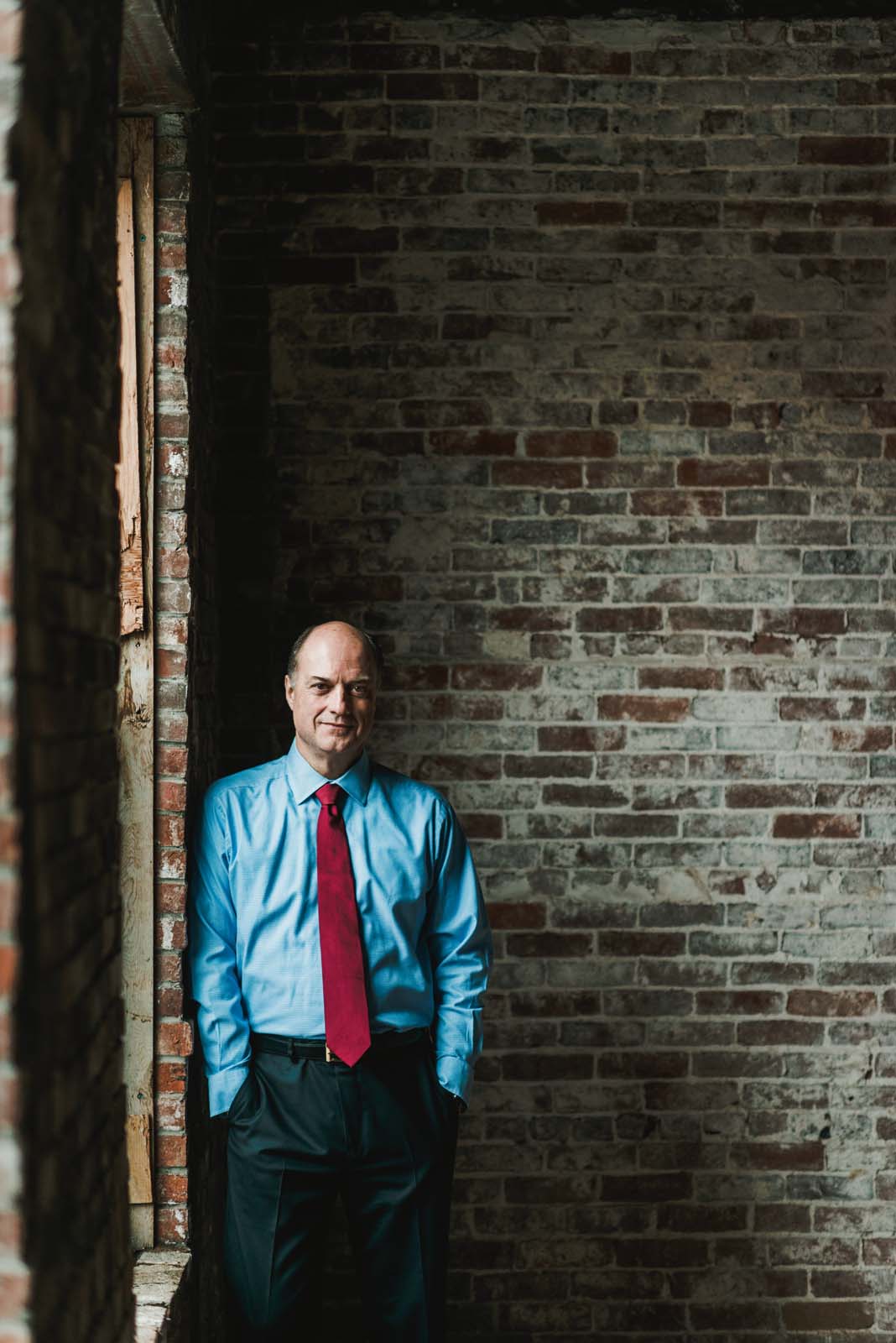
Greg Dufour often asks himself how he can make a difference in someone’s life. “As the president and CEO of Camden National Bank, I aspire to bring that mindset to every element of our community efforts,” Dufour says. Having worked with Camden National for 18 years, he is experienced at managing his team as they protect the safety of their depositors’ money, maintain jobs across the state, and influence the bank’s communities by raising awareness about homelessness. “In Maine, we know there are often two degrees of separation between people,” Dufour says. “To me, that is the ultimate form of accountability.” In 2015 Dufour led the launch of Hope@Home, an ongoing program that donates $100 to a homeless shelter every time a customer finances a home purchase through the bank. Employees have also been highly involved in the mission of Hope@Home. Three years ago they collected Hope Kits, packages filled with toiletries and nonperishable food items to be donated to the shelters. In four years, Hope@Home has raised over $385,000. Each shelter determines the best way to use the funds—whether it’s purchasing food and clothing, doing building repairs, paying staff, or another necessity. Because of his leadership, last year Dufour was honored in the Junior Achievement Business Hall of Fame. “I’m most proud of the passion and purpose our employees bring to helping our communities,” Dufour says.

For more than 70 years Lois Dodd has sat at a canvas and taken in the world around her, translating fragments of nature into painted works of art. Dodd has long been admired for her paintings, which often depict close-ups of flowers, trunks and branches of trees, and the perspective seen through many different windows. Her works demonstrate her sharpened ability to capture complexity in simple subjects. Although she wasn’t born in Maine, Dodd has been coming here since 1951. She spends most of her summers in Cushing, splitting her time between Maine, the Delaware Water Gap, and New York. What continues to draw her back is the inspiration she finds in the immediate environment, she says. “Maine has a landscape light that is more dramatic and graphically clear than that of more southernly locations,” Dodd says. “The strong light-and dark-value contrast provides a visual simplification of shape and forms and denies disruptive detail.” Dodd, who is now 92, has since 1998 been an elected member of the American Academy of Arts and Letters, an honor society comprising 250 renowned artists, architects, writers, and composers throughout the United States. In addition, Dodd has taught at a number of schools, including Brooklyn College, Queens College, Wagner College, and the Skowhegan School of Painting and Sculpture, before retiring in 2011 from her nearly 50-year teaching career. She now focuses her time on continuing to capture the moment on canvas. “I do it for myself, and if other people see something in it, great. But, first and foremost, I must challenge and please myself,” she says. “The more personal an expression can be is also the most universal it can become.”
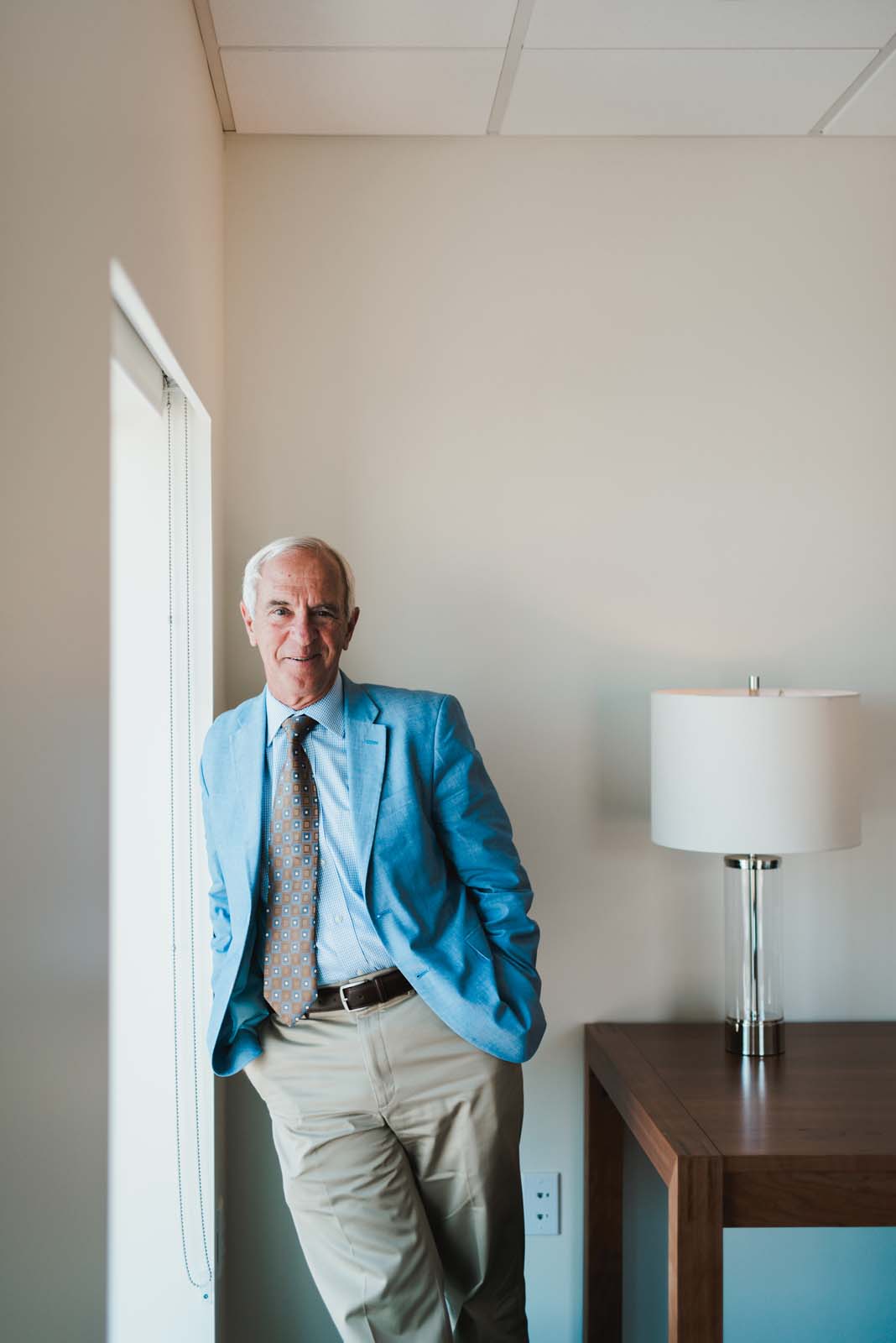
Charles Hewett was born in Lewiston and moved back to Maine in 1983 to create high-quality jobs for Mainers. “Great employment opportunities in Maine have been elusive,” Hewett says. “That’s why I am committed to enhancing the quality of life for my fellow Maine people.” Hewett is the executive director and a founding board member of the Institute for Digital Engineering and Life Sciences, a Portland-based professional graduate program that plans to open in 2021. The school will focus on training digital engineers in areas such as cyber-security and life sciences analysts in areas such as bioinformatics. Before working on the graduate program, Hewett worked for 15 years as executive vice president and chief operating officer at the Jackson Laboratory (JAX). The Bar Harbor–based biomedical research nonprofit works to find genomic solutions to cancer, Alzheimer’s disease, addiction, and other diseases. During his time at JAX, Hewett established a strong financial and organization foundation for the institution. JAX currently employs more than 1,400 people in Maine and contributed more than $630 million to the state’s economy in Hewett’s last year there. During his time at the institution, Hewett created the Maine Cancer Genomics Initiative, which introduced Maine’s oncology practices to a new approach to cancer treatments. He also supported his team as they executed preclinical trials for the first drug to treat spinal muscular atrophy, a life-threatening spinal cord disease. “I take pride in the teams I have built and all that they have achieved working together,” Hewett says. In 2018 JAX opened the Charles E. Hewett Center, a state-of-the-art research mouse production facility named after Hewett.

“Each year the Toboggan Nationals culminates in a big family reunion,” says Holly Anderson, who has been involved in the event since first racing in it in 1998. She returned the following year as a volunteer, and in 2017 she became the assistant director at the Camden Snow Bowl, a town-owned recreation area that has hosted the toboggan race since 1991. “We all come together, bring a few new friends and family members, gear up for a little competition, and celebrate having fun in the cold, like any other family in Maine would,” says Anderson, who is chairwoman of the U.S. National Toboggan Championships organizing committee. The annual event helps to support the Snow Bowl’s operations and brings the community together during one of the coldest, darkest times of the year. Each February, up to 425 teams, composed of 1,300 racers from all over the country, and 6,000 spectators take part in the three-day-long event. The original (and only still-operational) 400-foot wood chute was built in 1937, and while it has been repaired and updated, some original timbers are still in place. Anderson feels lucky to have built a long-term relationship with committee members and the community. Year after year, she sees a consistent devotion from long-term racers and her committee coworkers. “I have never lived in a community with so many people who give their time and talents to others,” she says, “and I love being with these hardworking, community-minded, altruistic people.”
Erin French | Chef of the Lost Kitchen
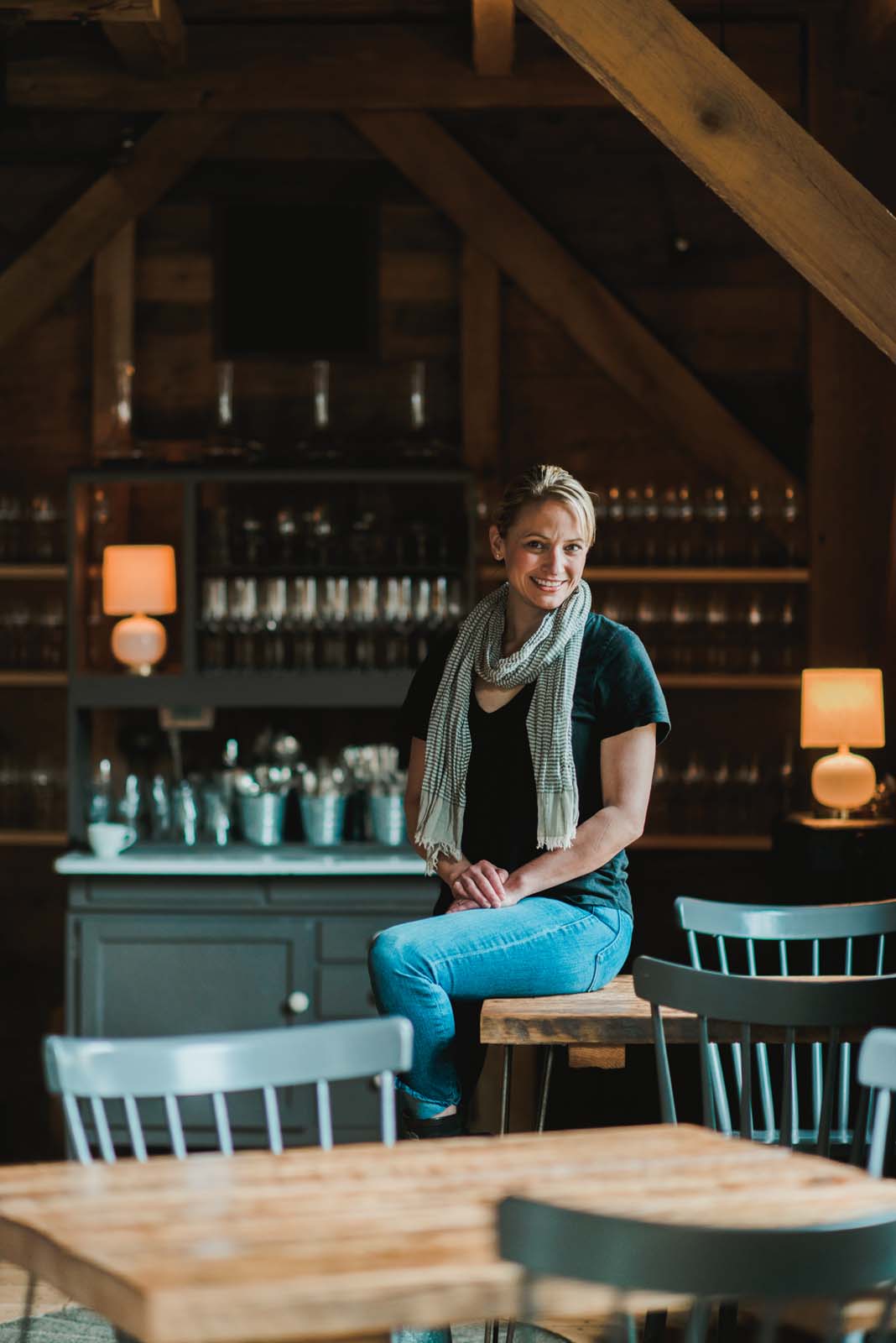
Erin French grew up down the road from a crumbling grist mill in Freedom. As a child she worked in her family’s nearby restaurant, and like many others from rural towns, she thought she would have to leave to find success. Instead, she found it with a supper club she hosted in a Belfast apartment. She turned the supper club into an acclaimed but short-lived restaurant, its run and her culinary ascension cut short by a bitter divorce. Locked out of her restaurant and apartment, the only thing she retained from the business was its name: the Lost Kitchen. Then one of the farmers she knew from her Belfast restaurant told her that the old Freedom mill, which had recently been renovated, needed a tenant. “I saw the place, and I said, ‘Oh, my god. I can see a future here,’” French says. “I just started to dream about the space.” When she opened in July 2014 in the grist mill that was on its own second life, her customers were waiting. Now, reservations for the prix-fixe dinners are secured by a raffle system. This year 20,000 people mailed postcards to the restaurant during a two-week stretch in April for a chance at a seating. In its fifth year, the restaurant is a “well-oiled machine,” French says. “I feel like I’ve found this little bit of perfection and we got it and we know what it is and I don’t want to lose it.” She can’t imagine running her restaurant anywhere else. “To me, Maine has always been home and has always been the place that’s made me feel loved,” she says. “I feel like I can be my true self here.”
Renee Fay-Leblanc, MD FACP | Chief Medical Officer at Greater Portland Health

Renee Fay-LeBlanc believes that everyone has a right to quality, affordable healthcare. Since 2014 she has served as chief medical officer for Greater Portland Health, a nonprofit medical practice dedicated to providing care for patients regardless of their ability to pay. “I feel honored to do this work in my community and to try to make people’s lives better,” says Fay-LeBlanc, a Portland native. Greater Portland Health provides nearly 12,000 patients with services such as primary care, integrated behavioral care, and dental care. The health center sees more than 100 new patients a month and has nine locations in Portland and South Portland, including a site in Portland’s Bayside neighborhood to serve people experiencing homelessness. Greater Portland Health also partners with other community organizations to ensure that Maine’s immigrants and refugees have access to high-quality medical services. In addition to this outreach, Fay-LeBlanc and her team travel to meet patients where they live, on the streets, and at local schools. “We have an amazing team who help make what I do every day possible,” Fay-LeBlanc says. In addition to her work with the health center, she serves as an active member of the Williston-Immanuel United Church’s outreach committee, volunteers for Family Promise, and serves as a member of the board at Avesta Housing.
Tim Glidden | President of Maine Coast Heritage Trust

Tim Glidden has spent his entire career conserving Maine’s natural resources, working with a variety of stakeholders to protect irreplaceable assets. “The satisfaction that comes from conserving land, it’s so strong, so lasting, there’s really nothing like it if you care about Maine and Maine’s environment,” he says. As a child, Glidden remembers running through the woods behind his family’s home and waking up on summer nights to hear loons calling across Damariscotta Lake. “There’s a deep connection to the vast natural world which reminds me of my modest place and my responsibility to care for creation,” he says. Glidden, president of Maine Coast Heritage Trust (MCHT) since 2011, previously served as director of the state’s Land for Maine’s Future program, deputy director of the Natural Resources Council of Maine, and as an environmental policy analysis for the Maine legislature. In his time with the Land for Maine’s Future (LMF) program, one of his proudest achievements was being part of the team that reached a deal with a paper company to permanently conserve 50 miles of the Machias River mainstream and tributaries, which he calls “truly one of Maine’s hidden gems.” Another memorable victory came in 2014 when the owners of the Goslings, a group of small islands off Mere Point in Brunswick, needed to sell the land. Working with LMF and generous donors of every size, MCHT helped raised well over $1 million to buy the land and turn it into a public preserve. “I just feel that it has been an immense privilege to live and work in Maine, in all sorts of ways, protecting what makes Maine such a special place,” Glidden says. “It’s work that helps me stay optimistic.”
Adam Gardner + Lauren Sullivan | Cofounders of REVERB
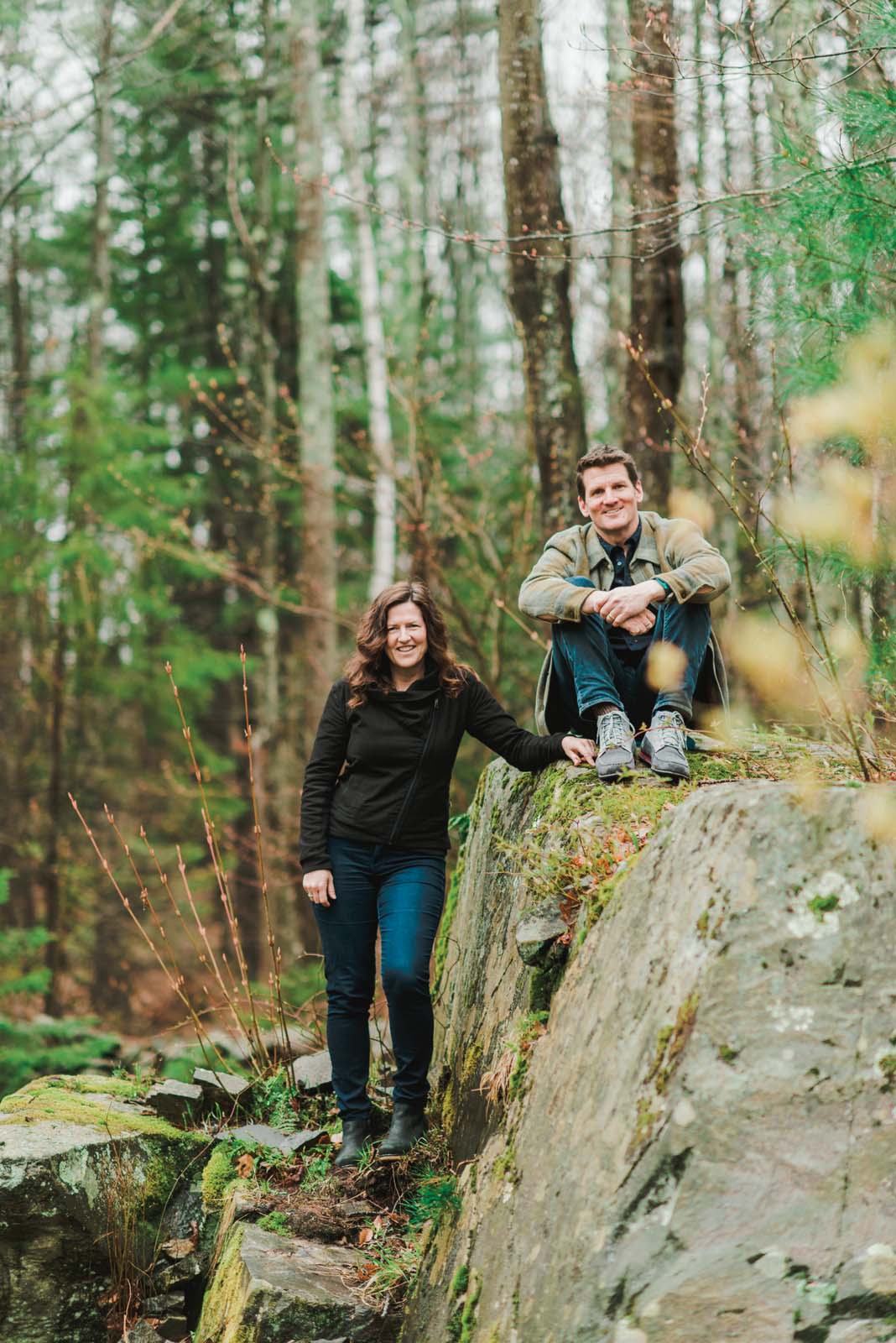
Lauren Sullivan and Adam Gardner have been to their fair share of concerts. Gardner, a vocalist and guitarist for the band Guster, has traveled the world touring. Sullivan, an environmentalist with deep roots in Maine, noticed just how widespread a musician’s influences can be. Fifteen years ago, the couple noticed the impact of tours, and the opportunity to connect with millions of fans about critical environmental and social issues. After the two learned of Bonnie Raitt’s Green Highway tour, an environmentally friendly tour focused on educating its audience, they reached out to other musicians who felt the same way. Shortly after, Sullivan and Gardner formed REVERB, a Portland nonprofit devoted to reducing the environmental impact of artists on tour, and mobilizing fans to take meaningful action for people and the planet. “Artists have a unique opportunity to demonstrate their own dedication to the environment by working with REVERB to green their tour and live out their own values,” says Gardner. Since its establishment in 2004, REVERB has made more than 250 tours environmentally friendly, supported more than 4,200 nonprofits, and helped to reduce carbon emissions by 120,000 tons. They have worked with artists such as Jack Johnson, Pink, John Mayer, Maroon 5, the Barenaked Ladies, the Dave Matthews Band, and Shawn Mendes. And in 2013, the organization partnered with Nalgene to reduce single-use plastic waste at concerts through a program called RockNRefill. Since the program began, RockNRefill has raised more than $1.8 million in support of nonprofit organizations and eliminated the use of 2.7 million single-use bottles.

Ayumi Horie uses her ceramic art to advocate for social change. In her Portland pottery studio, she makes bowls, plates, cups, and other items, many adorned with animal drawings. To Horie, these everyday objects act as educational tools and are the “perfect catalysts for social change and dialogue.” One project she helped launch in 2016, the Democratic Cup, enlisted 42 artists nationally to create a collection of cups with images of civil rights leaders and progressive messages. One of her newest pieces for the project is titled the Vaccination Cup and features pictures of grumpy germs next to a syringe-wielding woman. “They do their work softly and intimately when people’s defenses are lowered,” Horie says of the cups. “Coffee is a daily habit, and cups are naturally narrative, so adding social and political imagery fuels a conversation.” Horie grew up in Lewiston-Auburn and credits her inspiration for becoming a potter to Maine’s rich heritage of craft and to her family, who taught her to use her hands to fish and garden. She has used her artwork to fundraise for causes as well. In 2011 Horie organized Handmade for Japan, a campaign that included an auction of artists’ works to raise over $100,000 for earthquake disaster relief in Tohoku, Japan. She also cofounded Portland Brick, a collaborative public art project, where stories of human moments were stamped into local clay and fired into bricks that repaired sidewalks on India Street in Portland. As a result of her work and activism, Horie was honored as a Distinguished Fellow in Crafts by United States Artists. She serves on the board of trustees of the Haystack Mountain School of Crafts and is a trustee at the American Craft Council.
Jonathan King + Jim Scott | Founders of Stonewall Kitchen

Jonathan King and Jim Stott used to spend their weekends making condiments from herbs and produce gathered from the farmers’ market and their garden. “We never knew exactly what we were making since it depended on what ingredients were available,” says King. Twenty-eight years after King and Scott started selling those homemade condiments at farmers’ markets, Stonewall Kitchen is a specialty food titan—and today, they know exactly what goes into each product. The product labels, which still appear handwritten, are a nod to the company’s early years. Since King and Stott weren’t always sure of the ingredients when they first started making condiments, they wrote the labels once the recipes were finalized. The company’s York headquarters includes a production facility, cooking school, store, and cafe. “Maine conjures up feel-good emotions in our guests,” says King. But Maine conjures up feel-good emotions for King and Stott, too. Being able to give back to the local community is an integral part of King and Stott’s personal mission. They support charitable organizations in local communities that focus on food insecurity, children and families in crisis, community health and safety, animal welfare, and youth enrichment. Over the past ten years, King and Stott have donated more than $1.1 million in food and financial grant contributions to a number of community organizations. The company’s mission, which hasn’t changed since its inception, is to create the finest specialty foods ever, and in doing so, to never compromise on ingredients or recipe.
David and Daniel Kleban | Cofounders and Owners of Maine Beer Company
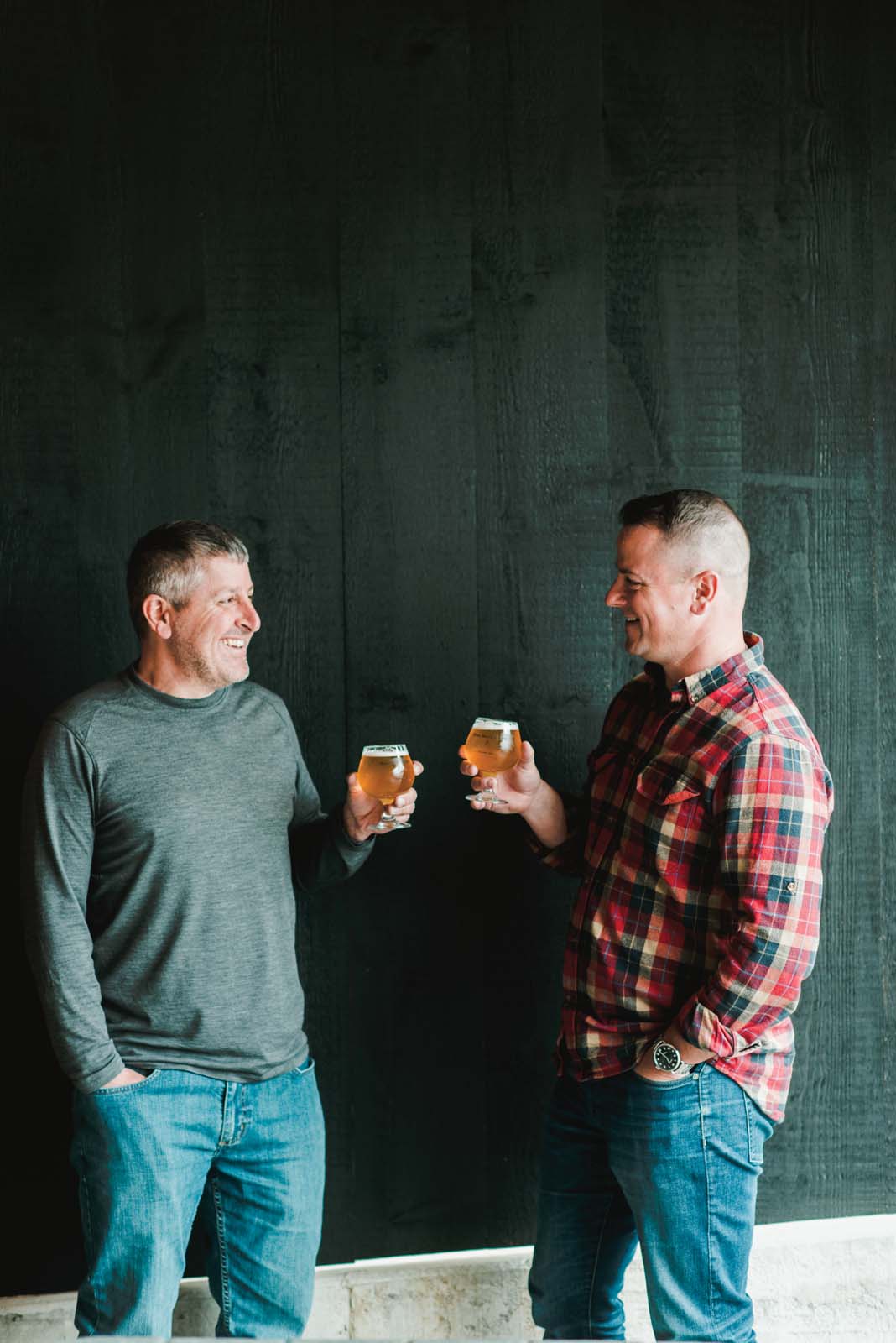
When brothers Daniel and David Kleban started Maine Beer Company in 2009, there were only a few dozen other breweries in Maine. They first opened a one-barrel operation in Portland’s Industrial Way, but within a few years had outgrown the space and moved to Freeport, where they recently opened an expanded tasting room. Maine Beer Company is now one of the largest in a state boasting well over 100 breweries and counting. Ever since the beginning, the company has been part of One Percent for the Planet, giving one percent of its annual sales to environmental nonprofits. So far the company has donated almost $500,000 to its nonprofit partners. “For us it was important to lay that marker out there from the beginning,” Daniel says. “We were really small. We wanted to prove and show others that no matter what your size, you can have an impact.” The Freeport brewery and tasting room uses solar power, and the company will be helping subsidize solar projects for nonprofit partners. Daniel says regardless of the size of a company, it should be doing what it can to help, and not harm, the environment. “As small businesses, especially in the state of Maine, we have to be leaders. We have to set the tone,” he says. “I think we owe it to our communities and the state to try to make the lives of folks here better and try to maintain the pristine environment we all cherish.”
Patrice McCarron | Executive Director at the Maine Lobstermen’s Association

“Maine’s lobstering communities are the economic backbone of our coast,” says Patrice McCarron, executive director at the Maine Lobstermen’s Association. McCarron, who has been in the position since 2001, supports these communities on many different levels. She ensures that any new regulations support the continued success of the lobstering community and that they do not undermine Maine’s lobstering culture and traditions. In addition, McCarron has recently worked with the Maine legislature to increase penalties for those who violate the state’s lobster conservation program. “Lobstermen believe so strongly in their conservation practices that they are willing to revoke the fishing privileges of those who violate these laws,” she says. McCarron is also the founder of the Maine Lobster Leadership Institute, a program focused on educating young people in the lobster industry on the issues it faces, as well as helping them find their places as future leaders. “Since its start, I have seen many young men and women step into leadership roles on a variety of boards, and even enter the Maine legislature,” she says. McCarron has also represented Maine for 13 years on the Atlantic Large Whale Take Reduction Team, a group established by the National Oceanic and Atmospheric Administration’s fisheries agency to help minimize hazards to marine mammals caused by fishing gear. In recent years, right whales in particular have been threatened by climate change and fishing gear. McCarron says it’s essential to quickly find solutions for removing large amounts of rope from the ocean, and that she will be working with and helping lobstermen through this daunting task. McCarron’s passion and dedication to the working waterfront is unmatched, and thanks to her work, lobstering communities will be in good hands for generations to come.
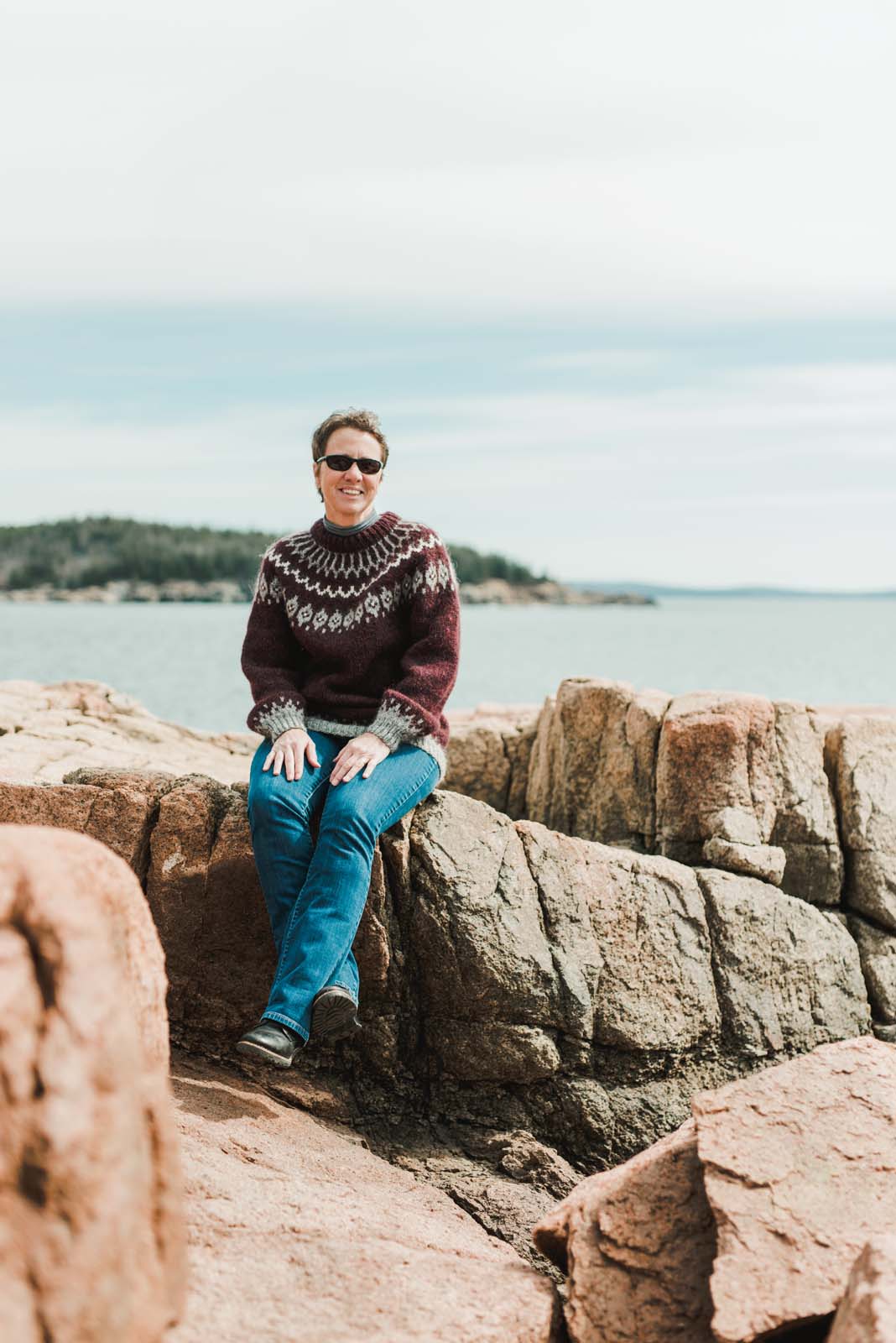
When Donna Wiegle moved to Swan’s Island in 2001, the only access to healthcare or eldercare was through a doctor who visited once a month. After living on the island for six years, she was instrumental in opening a health and wellness center in a former restaurant building, so residents could access the care they need. “Someone had to step up, and I guess that someone was me,” Wiegle says. As a medical laboratory technologist and the only employee of the Mill Pond Health Center since its opening in 2007, Wiegle witnesses the daily struggles that seniors face when aging on a remote island. She says that seniors play an integral part in the island’s culture and that she must work to help them. Through the health center, which doubles as a community meeting space, Wiegle aims to bring the islanders the same care that is available on the mainland. Each month, primary care providers visit the health center to see patients. In addition, a podiatrist and a dental group visit on a regular basis. She also organizes public educational meetings, such as pre-diabetes training, cancer support groups, and weight loss programs, for the island’s 350 year- round residents. As a result of her work, she received the Island Institute’s Community Champion award in 2019, and she has also received the American Heart Association Heartsaver Hero Award, Healthy Acadia’s Community Health Champion Award, and Bar Harbor YWCA’s Woman of the Year Award. “Even if someone is old or sick, they should have the chance to interact and contribute to the community,” says Wiegle, who in 2016 was diagnosed with advanced-stage ovarian cancer. “My disease will eventually end my life, but in the meantime, I hope to be able to continue serving my neighbors on Swan’s Island, as well as working on issues affecting the whole coast of Maine.”
Susie Konkel | Philanthropist + Retired Teacher

As the daughter of a U.S. Navy captain, Susie Konkel moved frequently as a child, but one constant through all the moves was an exposure to the arts. “I owe the values I hold to my family, with whom I am very close,” she says. Even as young children, Konkel and her brother, Jim, attended plays and visited museums with their parents. In 1987, shortly after her father retired from the Navy, Konkel and her family moved to Maine. They had long wanted to settle in Portland and were already members of the Portland Museum of Art before they moved. “We went to the museum a couple of times and fell in love with everything it had to offer,” Konkel says. “Now I can’t imagine living anywhere else other than Maine.” Last year Konkel helped ensure any child has the opportunity to fall in love with the museum by creating the Susie Konkel Pass, a Portland Museum of Art program that allows anyone 21 and under to visit the museum for free. “A lot of children would want to see a play or go to a museum,” Konkel says. “I wanted to make sure that even if it doesn’t fit in a family’s budget, they can still go.” Konkel has also supported the Portland Stage’s Theater for Kids program and Portland Symphony Orchestra’s Discovery Concerts for children and their families. “I believe in supporting the arts in totality—theater, art, music—because if we don’t have healthy arts programming, we won’t have a healthy Maine,” Konkel says.
Spose | Rapper + Owner of Preposterously Dank Records
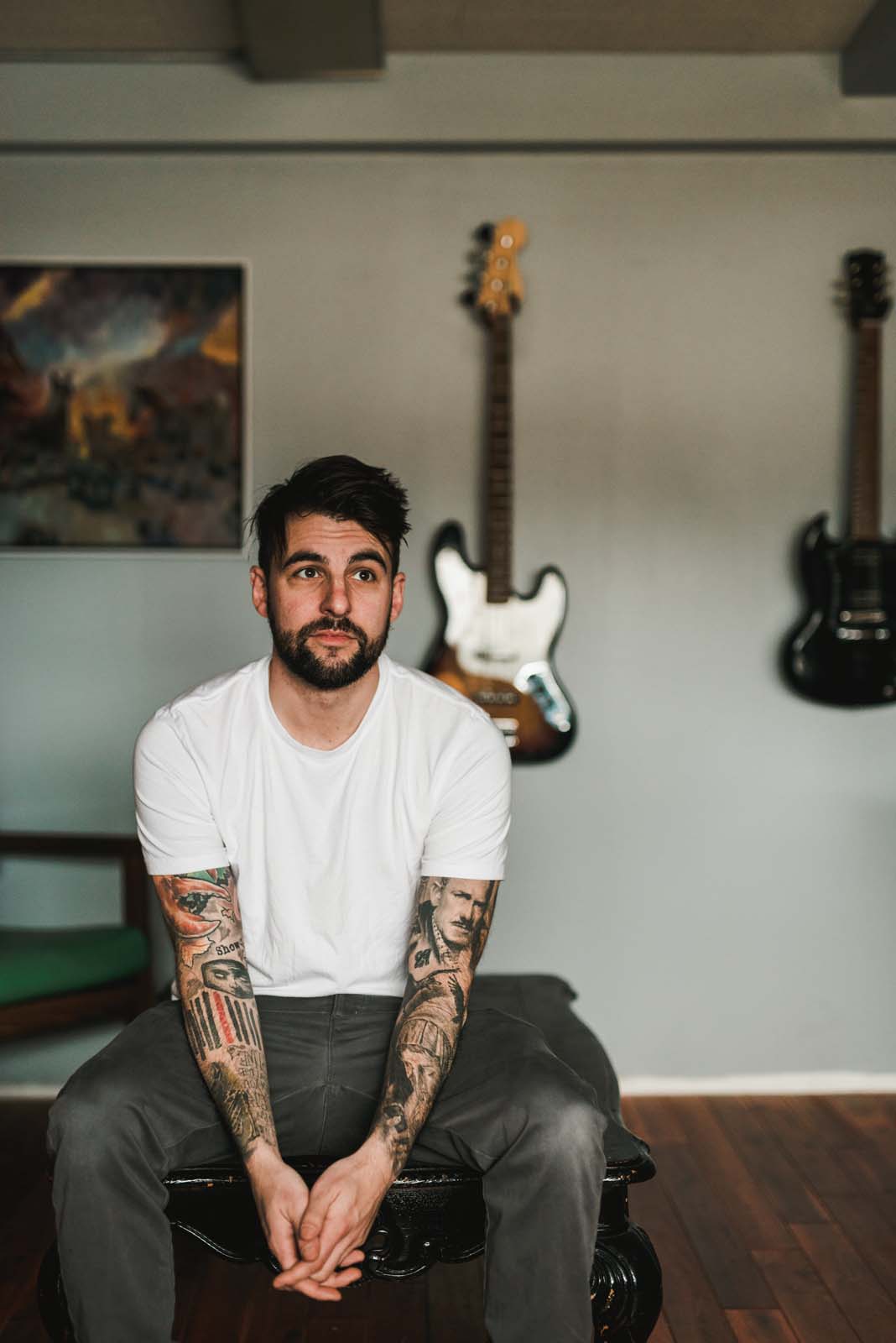
When Spose was signed by Universal Republic Records in 2010, he had just become a father and was working at Barnacle Billy’s in Ogunquit while finishing up college. His catchy single from an earlier mixtape, “I’m Awesome,” went gold by selling over 500,000 units. Then, ten months after signing him and before he even released an album, the label dropped him. Spose, born Ryan Peters, learned a lot from the experience. He founded his own record label and has since released eight more studio albums, along with several mixtapes and other projects, including a mobile app, Spose: The King of Maine, to promote an album. It’s been a decade since Spose released “I’m Awesome,” his tongue-in-cheek parody of hip-hop’s bravado, and his fan base has grown up with him. He now sees fans bringing their own kids to his shows. Last year the 33-year-old father of four wrote and published a children’s book called Pinecone Pete Is Not Impressed. Spose has always rapped about his life and what’s around him, so his work frequently references Maine. Just as John Steinbeck wrote about Salinas Valley and Biggie rapped about Bed-Stuy, Spose says he wants his rap to represent his hometown of Wells and the state of Maine. “It’s just home for me,” Spose says. “It’s what I know and where I feel comfortable.” As a kid he listened to the Rustic Overtones on the radio, so he knew it was possible to make music in Maine. “I never saw my geography as an obstacle to pursuing my music and dream career, and now, ten years into self-employment, I still don’t,” Spose says. “There’s really no reason to leave, at least for my occupation, because electricity, Spotify, and YouTube are just as close to Maine as they are to New York or Los Angeles.”

For the past five years, Charlotte Mace has been working to grow Maine’s bioeconomy—businesses utilizing the state’s renewable biological resources. “It’s particularly important for me to work on Maine’s rural economy,” she says. “We have many areas of Maine where the per capita income is much lower than the national average.” Mace, who served as the executive director of Biobased Maine for the past four years, has recently taken a position as the director of business development at the Maine Department of Economic and Community Development. Her new position helps her to facilitate growth in all business sectors including aquaculture, life sciences, and the forestry and logging industry. Mace sees especially broad potential in Maine’s manufacturing industry. “In a world where consumers and brands are demanding greener products, Maine has a competitive global advantage,” she says. “Thanks to a robust lumber industry, leftover forest residuals can be used to make new eco-friendly products.” For example, Biofine Developments Northeast, a technology company working to develop the first commercial-scale biorefinery in Bucksport, is converting woody biomass into a renewable heating oil substitute. Growing Maine’s bioeconomy is beneficial for a number of reasons, Mace says. By diversifying the forest industry and the types of products offered, Maine can begin to expand its global markets. In addition to diversifying the forest industry, Mace says this innovation has the power to create high-paying jobs in rural Maine, to increase economic and environmental sustainability, and to create a landscape in which Maine families are healthier overall.
Adam D. Lee | Chairman of the Board at Lee Auto Malls
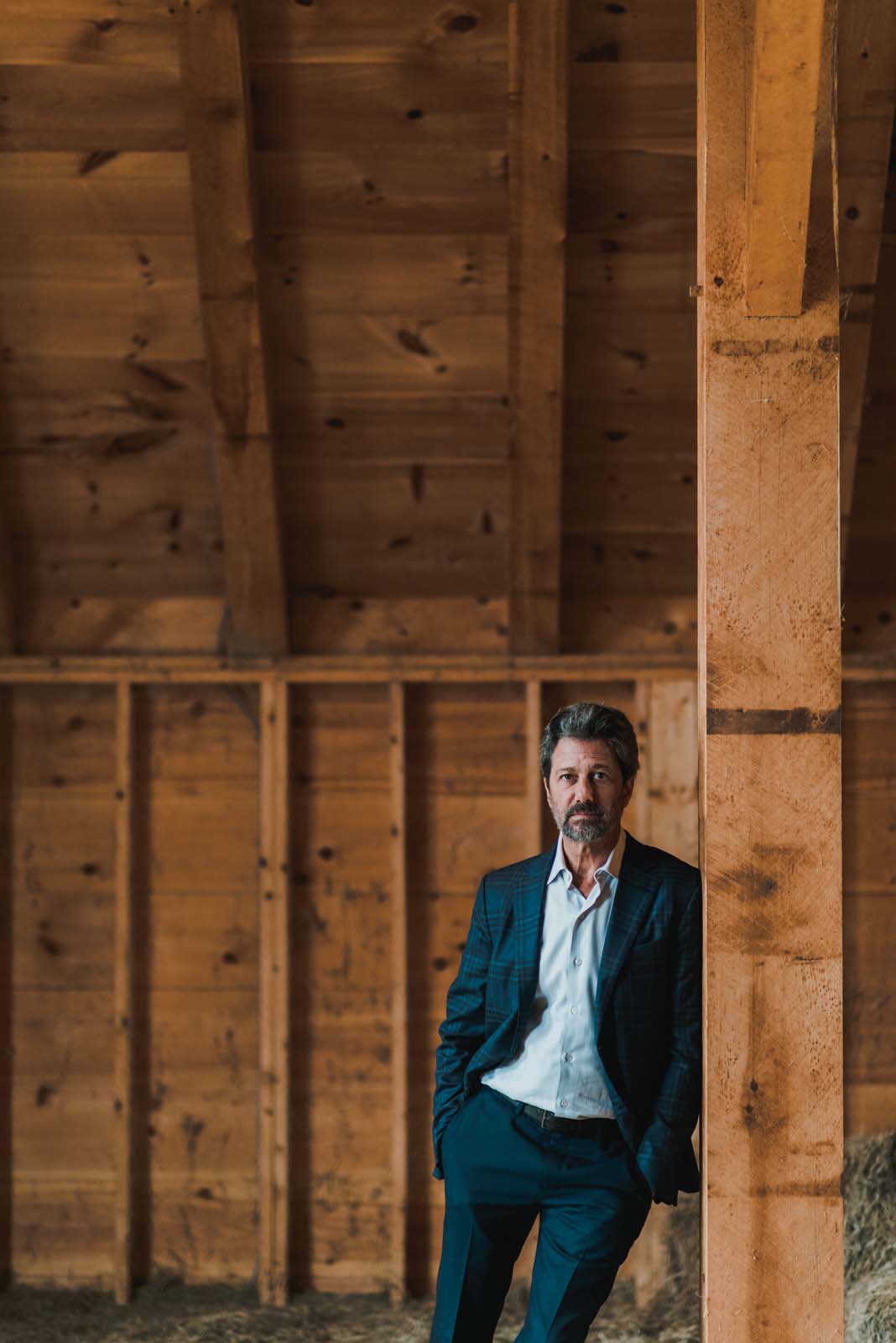
If you’ve spent any time in Maine, you’ve heard of Lee Auto Malls, now in its fourth generation of family ownership. Adam Lee, chairman of the board at Lee Auto Malls, was born and raised in Maine. Similar to many children growing up here, Lee spent a lot of time camping, and playing in the woods, and formed a close bond with the surrounding natural environment. “I appreciate what Maine has to offer and the fact that, for most of our history, our water has been clean, and our forests have been maintained in a healthy manner. But we cannot take these things for granted,” he says. “It takes so little time to ruin a river or clear-cut a forest, and it takes so long to repair it. We need to protect our greatest asset.” Lee is an advocate for the environment and regularly supports environmental organizations that help to protect our world, including the Natural Resources Council of Maine. While he admits to feeling a bit guilty about selling cars that contribute to pollution, Lee and his team actively promote the sale of hybrid and electric cars over gas-guzzlers. In addition to supporting environmental awareness, Lee helped to start the Russell Libby Agricultural Scholar Awards for the Maine Organic Farmers and Gardeners Association, which provides scholarships every year—to one high schooler, one educator, and one journey-person (someone who is dedicated to the agricultural community and economy)—to enable them to learn more about organic and sustainable farming.
Patsy Murphy | Executive Director of the Animal Refuge League of Greater Portland

“Animal welfare in Maine is exciting, complex, and dynamic,” says Patsy Murphy, executive director of the Animal Refuge League of Greater Portland. When she was a child, she and her siblings constantly tried to rescue animals, from an unwanted litter of kittens to wild and abandoned animals. If Murphy sensed she could help, she was there. So, when Murphy started her job at the Westbrook animal shelter in 2010, she knew she had landed in the right place. The organization was struggling to connect with its community, and she saw it as brimming with opportunity. “My goal was simple: to weave the people, the animals, and the community together to create a dynamic and innovative shelter for Maine,” Murphy says. It’s a goal that she has since reached and continues to expand upon today. Under Murphy’s direction, the organization raised $6.5 million to construct a new facility, which opened in 2016. The state-of-the-art space has allowed the organization to help more than 6,000 animals every year, from nearly every part of the world. They have rescued animals from meat farms in South Korea, overburdened city shelters in Los Angeles, and hurricanes in Puerto Rico, as well as helping to relocate pets from the deep South. The organization also provides resources to support and promote adoption and pet wellness, and it is cultivating the next generation of pet owners by teaching them empathy, responsibility, and respect. However, Murphy’s greatest accomplishment will always be in the number of lives saved.
Chris Van Dusen | Children’s Book Author + Illustrator

Like many kids, Chris Van Dusen liked to draw. When he visits elementary schools, the children’s book author and illustrator says he sometimes asks the students to raise their hand if they like to draw, and all the hands go up. “The only thing that was different about me is that I kept drawing because it was the one thing I could do with some success,” Van Dusen says. After graduating from the University of Massachusetts at Dartmouth with a bachelor of fine arts degree in 1982, he tried to make a living as a fine artist. But with a young family, it made more sense to become an illustrator. He worked for more than a decade as a freelance illustrator for magazines, specializing in art for kids, before he combined an image he had drawn of a boat stuck in a tree and story idea about a character named Mr. Magee driving down to the sea. His first book, Down to the Sea with Mr. Magee, was born. The Camden resident has since written and illustrated nine other books and has illustrated fourteen books with other authors. One of his most popular books, The Circus Ship, which was published by Candlewick Press ten years ago, was just inducted into the Picture Book Hall of Fame by the American Booksellers Association. “This job can sometimes feel a little solitary working every day at home,” Van Dusen says. “But when you visit a school or a library and see a child genuinely excited about your book, with all the distractions and all the screens they have competing for their time, that’s probably the most rewarding thing of all. It’s the enthusiasm of a young reader that makes all the late nights and tight deadlines worth it.”
Briana Warner | CEO of Atlantic Sea Farms

If there is a traditional path to becoming CEO of a seaweed company, Briana Warner did not follow it. For six years she served as a diplomat for the U. S. Department of State, including in Guinea for the country’s first democratic election. After moving to Maine, she started Maine Pie Line, an acclaimed Portland bakery known for its unique pie flavors, including many savory ones. She sold the pie company after becoming economic development director at the Island Institute, where she helped fishermen diversify into different forms of aquaculture. While at the Rockland nonprofit, she worked with Ocean Approved, the country’s first kelp farm, to build up its supply chain. Last year she joined Ocean Approved as CEO and helped develop its first retail products. “It actually feels very natural,” Warner says of her career trajectory. This spring the company, now called Atlantic Sea Farms, began selling and distributing its products, including jars of seaweed salad and kelp kimchi, frozen cubes of kelp for smoothies, and ready-cut frozen kelp. Atlantic Sea Farms works with more than a dozen kelp growers along Maine’s coast. “Our state has always placed incredible value on our marine industries and the communities that are built around the ocean,” she says. While Maine’s fishing industry is currently reliant on lobster, which makes up three-quarters of the state’s total fishery value, she says Maine’s growing aquaculture industry is the best possible way to ensure that fishermen and the communities that rely on fishing continue to thrive. “Aquaculture can help us ensure that our coast doesn’t lose our traditional marine livelihoods,” Warner says. “We have to embrace this new way of fishing in order to remain who we are.”
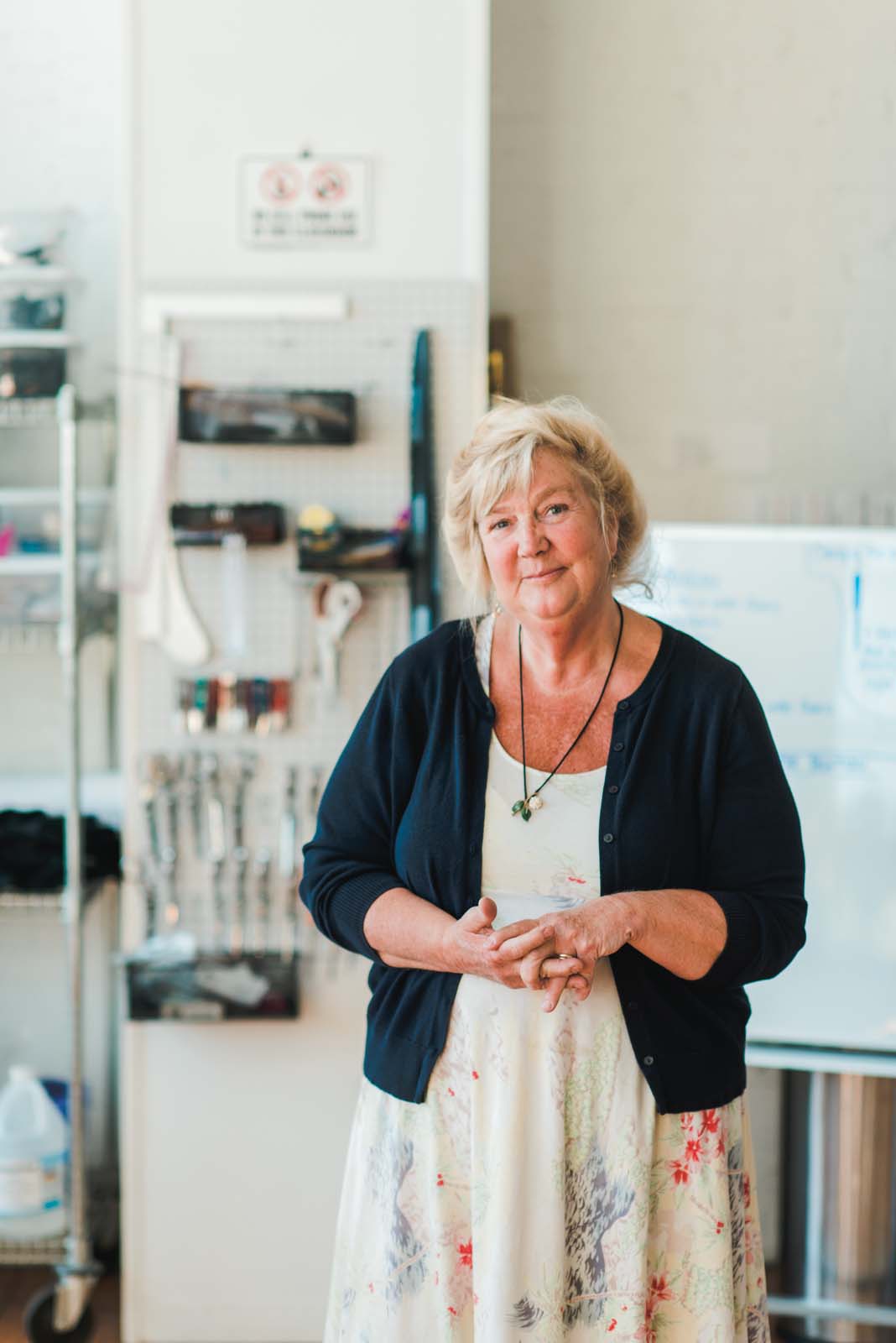
Inside a Westbrook mill, Dory-Anna Richards Waxman teaches new Mainers the art of commercial sewing. Common Threads of Maine, which she founded in 2015, helps immigrants build better lives in Maine. Along with her staff of three, she teaches immigrants how to operate sewing machines, read and make patterns, and cut and blend garments. During the school’s 16-week intensives, students also learn basic English and math skills and are coached on how to find employment as professional sewers. Several Common Threads graduates now work for Maine-based companies such as Angelrox, American Roots, and Hyperlite Mountain Gear. “When I open the shop each morning, the students come in laughing and hugging,” says Waxman. “They are the reason that I do what I do.” Nearly 30 years ago, Waxman started Casco Bay Wool Works (now Old Port Wool and Textile Company) with her husband, Daniel, and learned how to sew wool capes, shawls, and blankets to make a living while raising her three children. Within two years, she was designing and shipping hand-sewn wool garments from Maine to countries all over the world. She opened Common Threads to pass on her textile skills to the next generation. “Helping women living in challenging situations become professional seamstresses and integral parts of our communities makes my heart full,” Waxman says. Along with her son and daughter-in-law, Ben Waxman and Whitney Reynolds, Waxman cofounded American Roots, a Westbrook-based clothing company that uses American-made fabric and materials to make clothing, blankets, and scarves.
Nancy Strojny | Chairwoman of SCORE Portland + Principal of Nancy Strojny Consulting

Ten years ago, Nancy Strojny didn’t know anyone in Maine. She moved here in 2009 to be closer to the ocean, and in the process, she found an unexpected life path. Strojny wanted to get involved in the community, so she started volunteering at SCORE, a resource partner of the Small Business Administration (SBA) and a nationwide nonprofit volunteer mentoring service for small business owners. In 2019 the Portland chapter of SCORE was voted the SBA’s National SCORE Chapter of the Year. Strojny, who has been chair of the Portland chapter since 2011, attributes this win to the organization’s demonstrated ability to create meaningful and sustainable community impact with proven results over a significant period of time. “Excellence, consistency, and collaboration define our success,” she says. The network of SCORE volunteers and mentors are professionals from a wide variety of fields. Free business workshops are offered weekly, and mentors are available to help small business owners at every level, whether someone is just starting out, a seasoned professional, experiencing problems, or looking to grow. For Strojny, being able to help others is her driving force. By looking carefully at the details of someone’s business or ideas, Strojny can offer applicable value and context, not just theoretical suggestions. “Being a good mentor requires empathy, humility, and knowing it is always about the mentee and their success,” she says. “My hope is that the success of those I’ve mentored will speak for itself.”
Alain J. Nahimana | Executive Director of the Greater Portland Immigrant Welcome Center

In 2010 Alain Nahimana fled his home country of Burundi and moved to Maine. Through Portland’s General Assistance work program, he held several entry-level jobs before becoming the coordinator of the Maine Immigrants’ Rights Coalition and eventually cofounding the Greater Portland Immigrant Welcome Center in 2018. The nonprofit organization provides immigrants with resources they need to work in a new country. “It’s a blessing to do the work that I do,” Nahimana says. Through the Welcome Center, Nahimana helps immigrants prepare for the workforce by offering several educational programs, such as a digital language course that teaches industry-specific vocabulary and the Immigrant Business Hub, which provides training for immigrant entrepreneurs in Portland. The organization also helps new Mainers acquire citizenship and register to vote, which Nahimana believes will help Maine’s democracy become more inclusive and therefore contribute to building a better society. Nahimana also serves as a board member for Maine Initiatives, Youth and Family Outreach, and the Environmental Health Strategy Center. He is both grateful for the chance to help immigrants develop skills for leading successful lives in Maine, and proud to show his children how resilience and perseverance helped him reach his goals.
Stephen Smith | President + CEO of L.L.Bean

Stephen Smith, who took the helm of L.L.Bean in 2016, first moved to Maine in the late 1990s. He later worked overseas in Belgium, China, and England, but his return to Maine was purposeful. “I love L.L.Bean and always have,” he says. “It stands for everything that matters most to me and my family—a passion for the outdoors, a responsibility to our local community and the greater environment around us, a commitment to serve customers with great products, and a deep adherence to a long-held set of core values.” In the immediate years after Smith became L.L.Bean’s fourth president and CEO and the first hired from outside the company, the outdoor retailer took several major steps to counter its flat sales, making changes to its returns and shipping policies, reducing its workforce, and launching its Be an Outsider campaign, a brand repositioning that created a significant number of new customers. The bold moves paid off with an increase in sales in 2018 and a five-percent bonus for about 5,400 eligible employees. The company also increased 401(k) contributions and paid parental leave. “I want to be a good, responsible steward of the brand and set it up for decades more of growth for the next generation,” Smith says. “You really feel that when you come into this role at L.L.Bean because it’s so intrinsically linked with the state.” Being a heritage brand with a long legacy makes any brand change more challenging because customers have decades of experience with the company, Smith says. But an advantage is that L.L.Bean’s century-plus of history gives it authenticity. “We are who we are,” Smith says.
Michael Sauschuck | Commissioner of the Maine Department of Public Safety

As police chief in Portland, Michael Sauschuck was known for engaging with community groups to address the complex causes of crime. He has spoken publicly about how the war on drugs was a failure and how the opioid epidemic needs to be treated as a public health crisis. In an effort to address the opioid epidemic, the department hired a substance use disorder liaison in 2016 to help police approach addiction from a medical standpoint, and officers now carry naloxone, a drug that can reverse overdoses. One of the lessons Sauschuck learned while in Portland is that recovery from opioid addiction is possible, but when you’re just focused on individual crises, “you don’t get a chance to step back and look about at the tens of thousands of success stories that occur,” he says. “We’re trying to solve problems with long-term solutions rather than short-term solutions.” Earlier this year he was nominated and confirmed to lead the Maine Department of Public Safety. Sauschuck became police chief of the largest municipal police department in the state in 2012, and served in that position until becoming Portland’s assistant city manager last year. He has also served on the boards of Milestone Recovery and the Maine Gun Safety Coalition. Sauschuck has received numerous awards over the years for his police work and his holistic approach to law enforcement. In 2017 he received the Law Enforcement Partner Award from the Maine chapter of the National Alliance for the Mentally Ill and the Maine Association of Police’s David W. Pickering award for police chief of the year.
Kevin Strong, MD | Founder, President + Chief Pediatrician of Dunk the Junk

As a pediatrician, Dr. Kevin Strong saw firsthand the effects of childhood obesity. He saw public health campaigns, such as former First Lady Michelle Obama’s Let’s Move!, focus on exercise instead of over-consumption of sugar. He saw the slick branding and advertising of soda and other processed food companies. And he saw the boring educational materials about the health risks of consuming too much sugar. “Coca-Cola has the greatest branding in the world, and then we come out with this dribble,” Strong says. So the Camden pediatrician founded Dunk the Junk, a nonprofit that uses hip-hop, street art, and social media to educate kids about the danger of excessive junk food consumption. Dunk the Junk focuses on how corporations have pushed soda and junk food onto kids, and that anti-establishment message matches the ethos of street art and hip-hop, Strong says. One campaign titled Operation: Defeat Sodatron imagines soda companies as an evil villain—Sodatron—that kids can defeat by uniting together. Strong brought on a Portland street artist, Mike Rich, to create murals with Dunk the Junk’s messages, and the organization has visited schools across Maine and around the world. According to the Center for Disease Control, the percentage of children and adolescents in the United States affected by obesity has more than tripled since the 1970s. Kids who are obese can have the same health issues as adults, including hypertension, joint issues, and increased risk of heart disease, stroke, and 16 different cancers, Strong says. “We have a moral obligation to warn every child about the overconsumption of sugar. These kids don’t know what they’re doing to their bodies and it’s preventable. I’m not going to stop until every kid knows it’s true.”
SSG Travis Mills | Founder of the Travis Mills Foundation
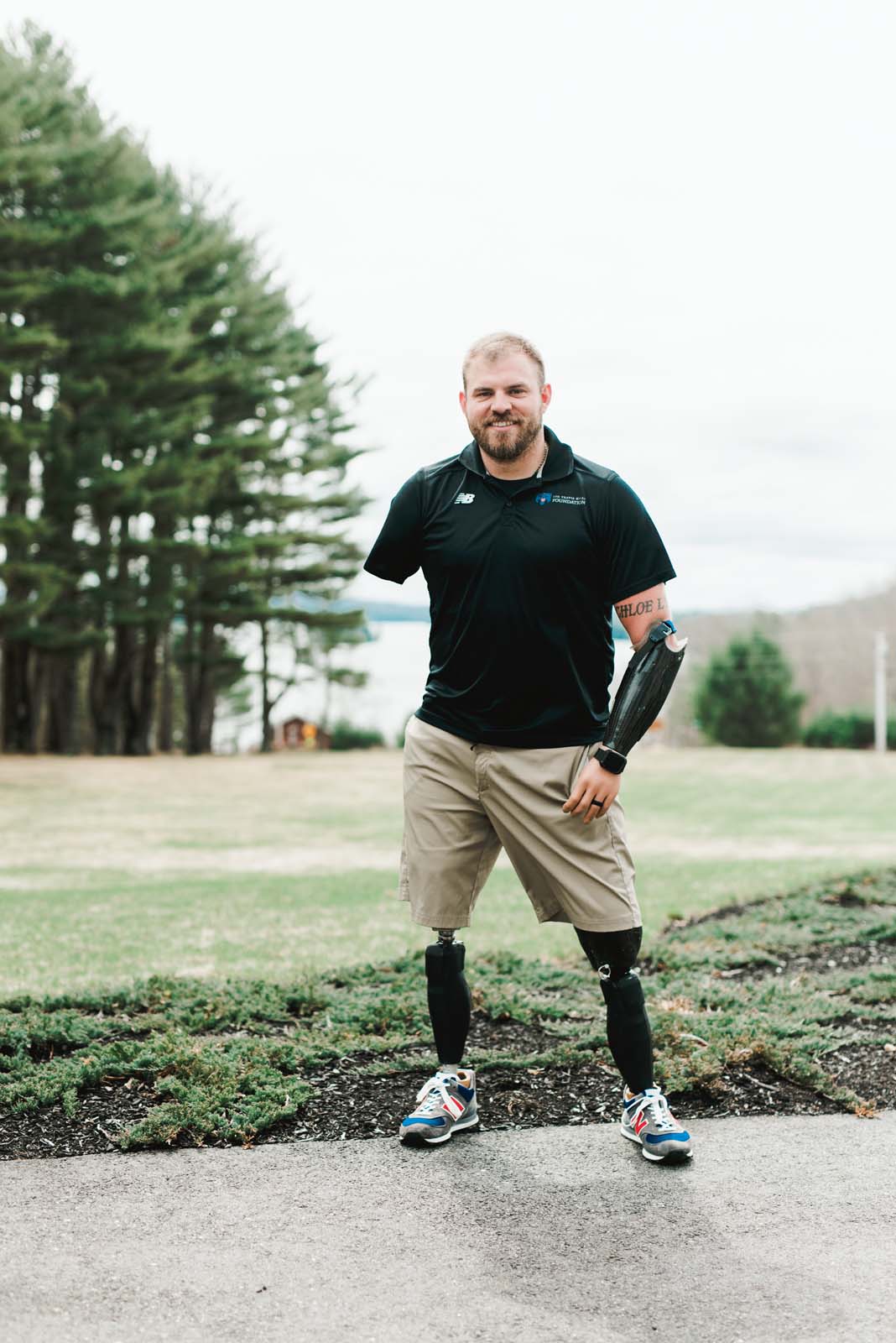
Seven years ago, while on patrol in Afghanistan, Travis Mills took off his backpack. When his bag reached the ground, a hidden improvised explosive device erupted beneath him, and he became one of four surviving quadruple amputees from the Iraq and Afghanistan wars (there are now five). “I came to a point in my life when I had to decide if I was going to give up or keep pushing forward,” says Mills. With the support of his wife and motivated by his six-month-old daughter, he retaught himself how to perform everyday tasks, including walking, eating, and driving. In 2013, after moving to Maine following a 19-month recovery at Walter Reed National Military Medical Center, Mills founded the Travis Mills Foundation to help other wounded veterans. Four years later he opened a retreat and recovery center in Rome for post-9/11 veterans who have been injured as a result of their service and their families. The retreat offers 22 weeklong programs where wounded service members and their families receive an all-inclusive free-of-charge vacation to heal and reconnect. During their stay, they are encouraged to participate in outdoor adaptive activities such as archery, kayaking, and snowshoeing. Mills says that the success of his nonprofit and the way Maine welcomed him and his family are examples of the state’s generosity. His goal with the retreat is to share the Maine experience with recovering members of the armed forces. “You have to take care of your fellow brothers,” Mills says of the veterans he helps. “Together we push forward every day because there is no reason ever to stop.” Mills, a retired United States Army staff sergeant, received a Bronze Star and Purple Heart for his military service, and through his nonprofit work, he earned a New Englander of the Year Award from the New England Council and the Citizen Honors Award from the Congressional Medal of Honor Society—each a testament to his motto: Never quit. Never give up.
Elizabeth A. McLellan, RN MSN MPH DRPS (HON) | Founder + President of Partners for World Health
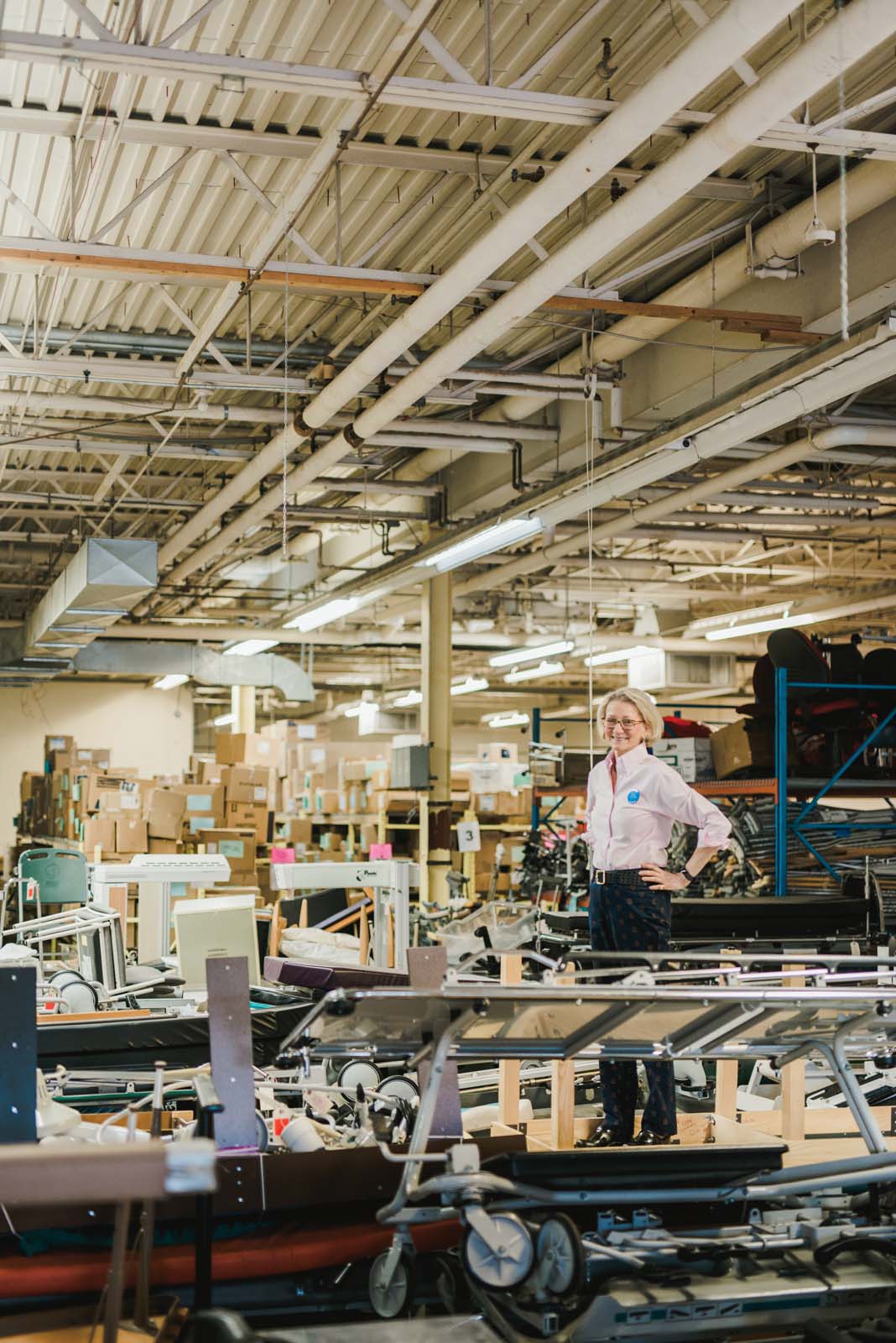
While working in a trauma center in Saudi Arabia, Elizabeth McLellan visited a hospital in Pakistan where she met a surgeon wearing a cotton robe covered in blood. Once inside, McLellan watched as the surgeon tended to each patient’s wounds and wiped his blood-stained hands onto his gown. “I looked at this whole scene and thought ‘Someday, when I go home, I’m going to do something about this,’” McLellan says, “and that is what I’ve done.” In 2007, 14 years after visiting the Pakistani hospital, she started gathering discarded and used medical supplies from Maine Medical Center and storing them in her home. After two years, she had collected over 11,000 pounds of recycled hospital equipment and founded Partners for World Health, the only New England–based nonprofit organization that collects, packages, and distributes medical supplies to countries in need. More than 800 people in Maine volunteer with Partners for World Health, ranging from high school students to retired adults. Last year alone, the group organized and repurposed over 250,000 pounds of medical equipment from hospitals in New England that would otherwise have been discarded. In 2011 the American Red Cross of Maine awarded McLellan the Real Hero Award, and she’s also received the Governor’s Award for Outstanding Nonprofit Volunteer Program from the State of Maine. She aims to teach her volunteers the importance of committing to something greater than themselves. “I am happy to lead an organization that has such an incredible impact on people both in our own country and overseas,” McLellan says. “In America, we have so much, and it’s time to give back.”
Gilda E. Nardone | Executive Director of New Ventures Maine
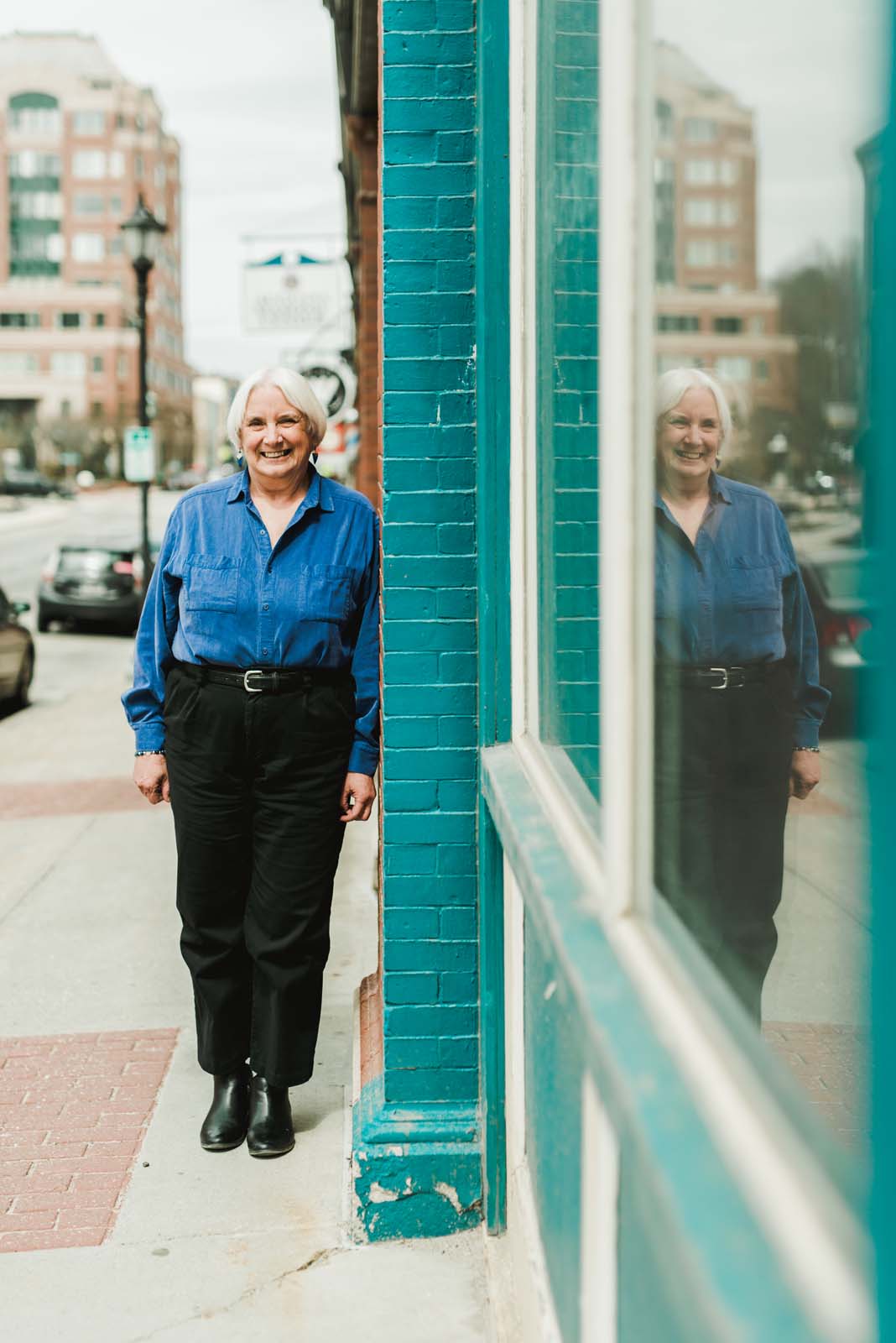
When Gilda Nardone was 17 years old, her life drastically changed. Her father died from a heart attack, and her mother, who had been a homemaker for the previous 20 years, was soon forced to return to the working world. This wasn’t the first time Nardone’s family had experienced this type of loss. Her grandmother was also widowed and had to re-enter the workforce after years of nurturing a home and family. “The experience of both my mother and maternal grandmother becoming widows at a young age and needing to chart the rest of their lives was certainly an influence on me,” says Nardone. In 1978 Nardone cofounded the Maine Displaced Homemakers Program, which assisted homemakers who were joining the workforce following divorce or the death or injury of a spouse. The organization helped women with job placement, offering employment counseling, training, and free information and referrals to help women find work. In the 2000s the program expanded beyond its original scope to increase professional opportunities for all people. Today, the program operates as New Ventures Maine (NVME) and aids 1,350 adults each year. Its mission is to help Mainers succeed in a changing economy and achieve economic security for themselves and their families. Nardone, who has been the executive director since NVME’s beginning, says, “I am committed to developing and providing access to quality education and training, good-paying jobs with benefits, support for small business development, and financial resources to help individuals and families become financially stable and secure throughout the state.”
Rod Mitchell | Founder, Owner + President of Browne Trading Company
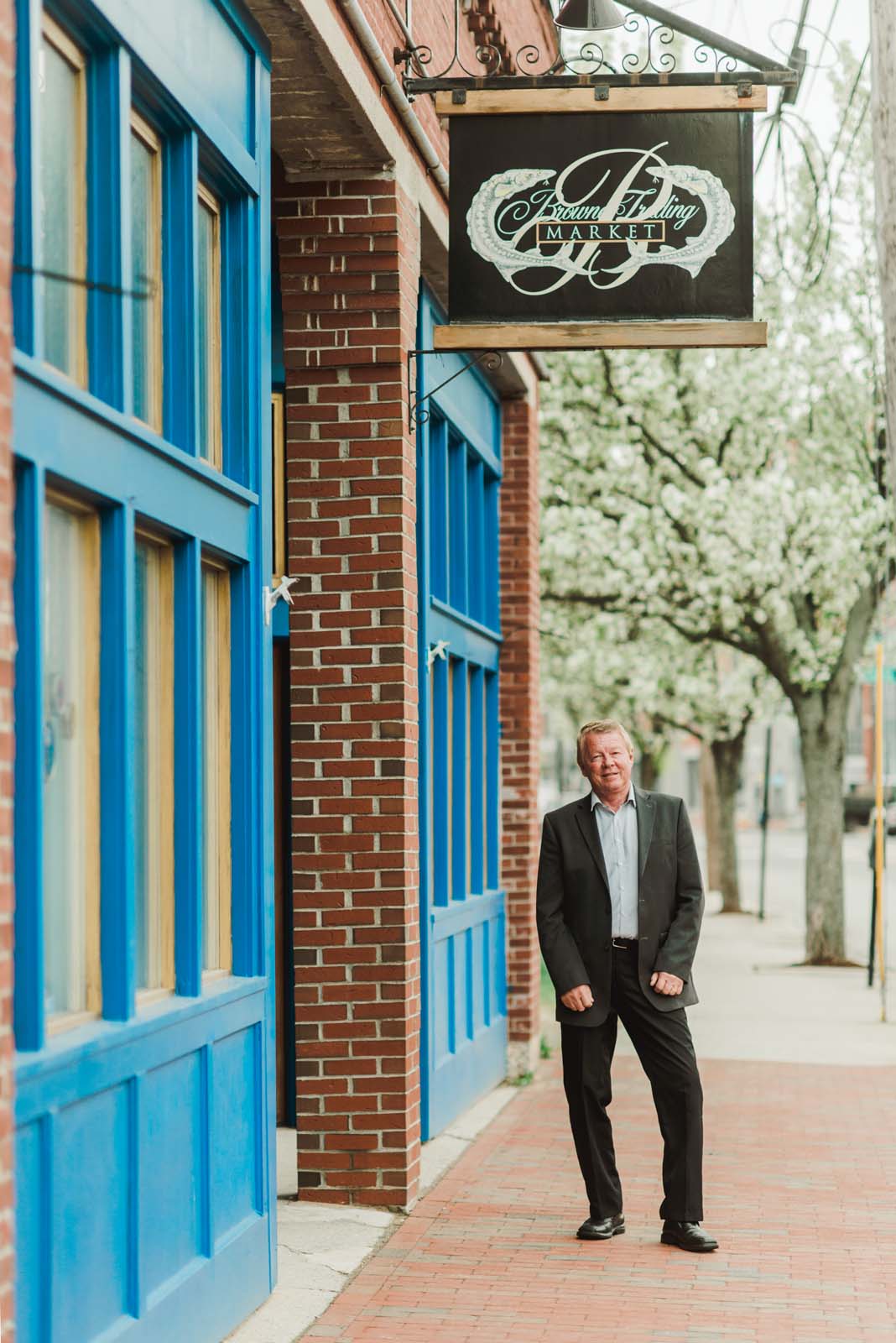
Rod Mitchell’s family has a long history in Maine’s seafood industry. They first came to Maine in the early 1700s and made a living fishing on the Kennebec River and in Merrymeeting Bay. In his office in Portland, he has a vintage photograph of multiple generations of his family gathering around a giant sturgeon they had caught. Mitchell himself has been selling hard-to-find seafood for more than three decades. He was running a wine and cheese store in Camden in the early 1980s when Jean-Louis Palladin, chef of the acclaimed Jean-Louis at the Watergate Hotel, visited his store and started asking about seafood. Palladin connected him with a caviar supplier, and asked Mitchell to source him Maine seafood that had previously been ignored, including scallops and elvers. Soon other renowned chefs started asking Mitchell to supply them with Maine seafood, and he opened Browne Trading Company on the waterfront in Portland 1991. Browne Trading Company now supplies caviar, fresh fish, smoked seafood, shellfish, and other seafood sourced from around the world to some of top restaurants around the country and in Maine, along with home chefs. The company’s mail-order business has grown significantly in recent years, and its retail store has been open since 2000. “I think we started the specialty seafood revolution,” Mitchell says. “We’ve made people more aware of what they were getting—the higher quality of seafood, it comes from Maine—and we’ve opened up the eyes of people to the great seafood that comes from all over the world.”

For more than two decades, Matthew Williams has been pioneering the growing of grains in Maine. The Aroostook County farmer and former grain agronomist with the University of Maine Cooperative Extension first started growing food-grade wheat in the late 1990s at the encouragement of Borealis Breads owner Jim Amaral, and later expanded his Linneus farm to include a milling operation. “They were the grandfathers of bringing back local grains to Maine,” says Williams’s daughter, Sara Williams Flewelling. She joined the farm with her husband, Marcus, in 2013. Since then, they’ve grown the farm by five times, helped reestablish Maine’s grains infrastructure, and created new markets for themselves and other farmers in Aroostook County. They visited Japan with the owner of Yosaku in Portland, Takahiro Sato, to learn how to grow buckwheat, which Sato now uses to make soba noodles for his restaurant. Williams Flewelling says they like to partner with companies that share their social mission, such as One Mighty Mill, a company in Lynn, Massachusetts, that mills Aurora wheat on-site to make bagels, pretzels, and other baked goods. Aurora Mills and Farm also supplies Allagash Brewing Company, which has pledged to use one million pounds of local grain annually by 2021.
Dan Mills | Director of the Bates College Museum of Art

One of nine art museums in Maine, Bates College Museum of Art serves Bates College, the Lewiston-Auburn community, and the surrounding region with free thematic, contemporary exhibitions that can be integrated into a variety of educational courses and disciplines. Museum director Dan Mills has been leading this community, college, and cultural engagement since 2010. In that time, he has increased the museum’s educational and collection staff, which has allowed the museum to expand and diversify its collection and achieve greater alignment with the academic mission of Bates College. Mills also brought in a larger variety of international, national, and local artists and significant artworks for exhibition, such as an exhibition last year of Dahlov Ipcar’s work, including many pieces that were exhibited publicly for the first time. Since Mills joined the museum, seven exhibitions have traveled to more than a dozen places to be showcased across ten states. When he’s not in the museum, Mills is in his studio, where he creates art that explores ideas and topics of history through creating paintings and collages on maps. “To me, art is an essential part of life,” he says. “It is the creative branch of visual culture. We live in a world in which visual literacy is increasingly important. Directing the museum and being active as an artist are the ways I participate in and serve the cultural community of Maine.” As Mills works to implement innovative exhibitions, his hope is to continue to bring renowned artists and artworks to the state, to showcase the museum’s ever-growing collection, and to offer substantial programming that makes people from the college and the community feel welcome. Mills’s goal is to encourage people to make the Bates College Museum of Art part of their academic, cultural, and social life.
Marcia Minter | Cofounder of Indigo Arts Alliance + Vice President Creative Director at L.L.Bean

“It is important that artists of color are part of the fabric that makes up our creative community,” says Marcia Minter, the cofounder of Indigo Arts Alliance, a Portland nonprofit dedicated to celebrating Maine-based artists of African descent. Minter has worked with her husband, Daniel, to create a space that brings together artists from diverse backgrounds of the African diaspora to engage in their creative process, participate in arts enrichment programs, and to serve as both mentors and mentees. An integral part of the vision is to provide artists of African descent who reside in Maine access to a broader range of practicing black artists. “I believe that art transforms lives and is one of the best mechanisms for enabling people to connect at a deep level,” she says. Minter has lived in Maine for the past 16 years and is vice president creative director at L.L.Bean. “The definition of who is a Mainer and how long it takes to become one is becoming less rigid,” Minter says. “This opens up space for new people to be seen and new voices to be heard.” Minter also serves as a trustee for the Portland Museum of Art and is on the board at Portland Ovations, Maine Media Workshops and College, and Maine Partners of the Americas. In May, the Maine College of Art granted Minter an honorary doctorate.

The first time Jesse Salisbury picked up a chisel, he knew he had found his calling. While Salisbury had always been interested in art and studied a variety of forms and media, he kept coming back to sculpture. The challenge of working with hard stone held his interest in ways that other mediums couldn’t. “Soon after I started carving granite and hard stones, I became fascinated with the various characteristics of the material,” he says. Through his work he began to explore the inherent qualities of the material, such as the contrast between the weathered exterior of a stone and the deep interior coloring and crystal structure. He finds inspiration in Maine’s vast rocky coastline, weathered boulders, and abandoned quarries, but also in working with others. Salisbury founded the Schoodic International Sculpture Symposium, which has organized five international stone sculpture symposia starting in 2007. The organization, local communities, and invited artists also created and installed 34 public works of art across three counties, forming the Maine Sculpture Trail: a 200-mile outdoor exhibition of stone carvings. This year the organization will be sponsoring a sculptor from Japan, and it continues to explore ways of collaborating, both by bringing more artists to Maine and by helping Maine artists work internationally. “I really enjoy making public art projects because of the variety of skills needed to make a large project come together,” says Salisbury. Often, it takes years to complete large-scale projects, but from collaboration with stakeholders to designing, planning, and the physical labor that goes into creating a sculpture, Salisbury loves every step of the way.
